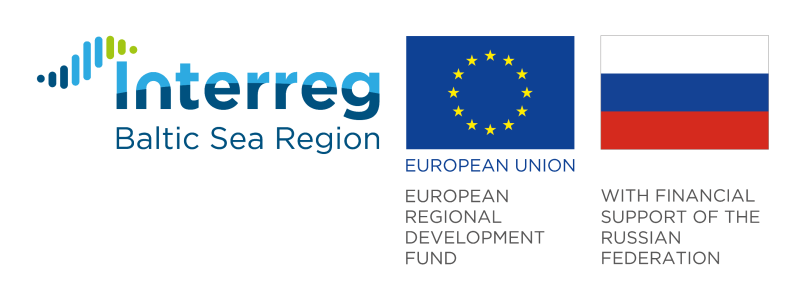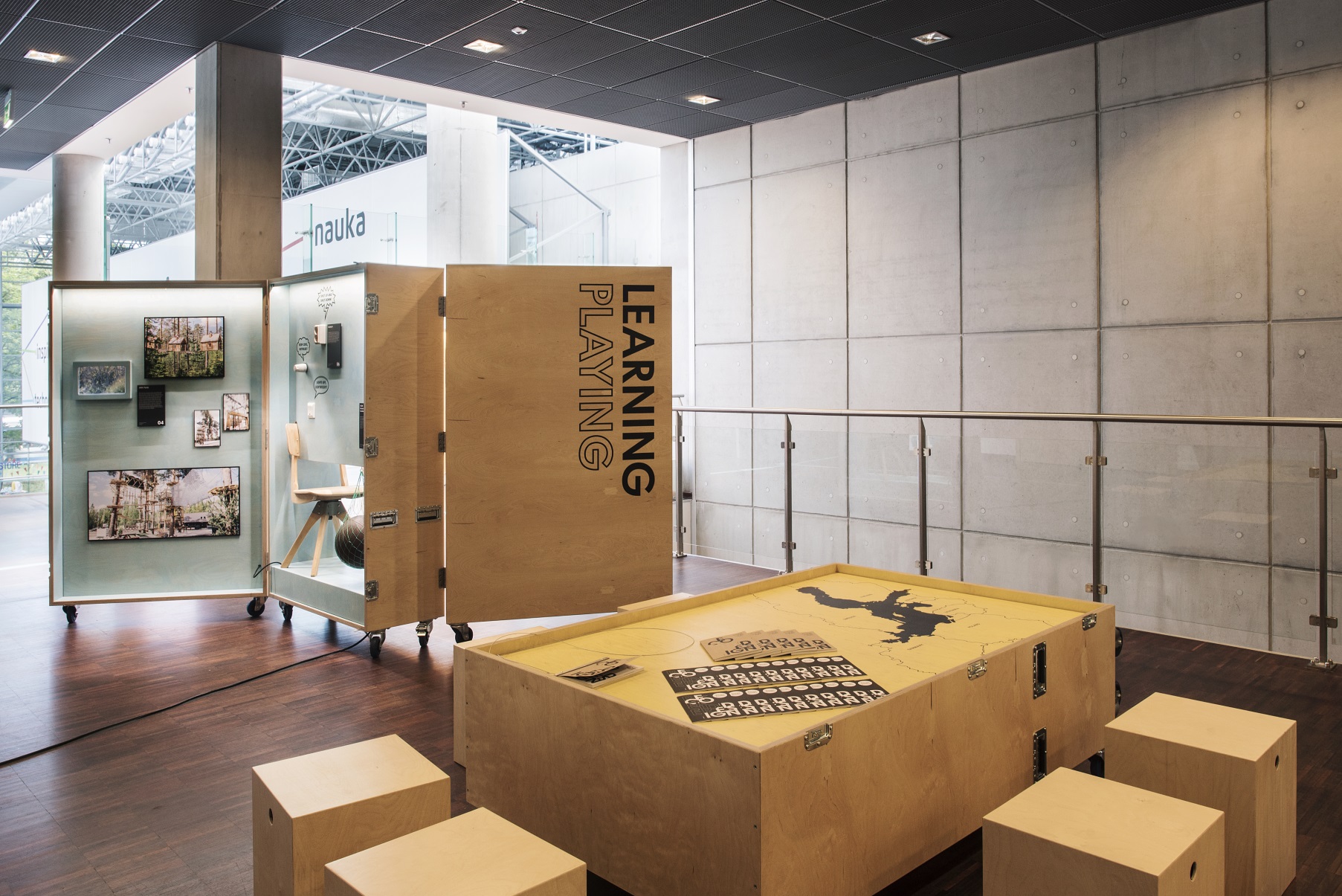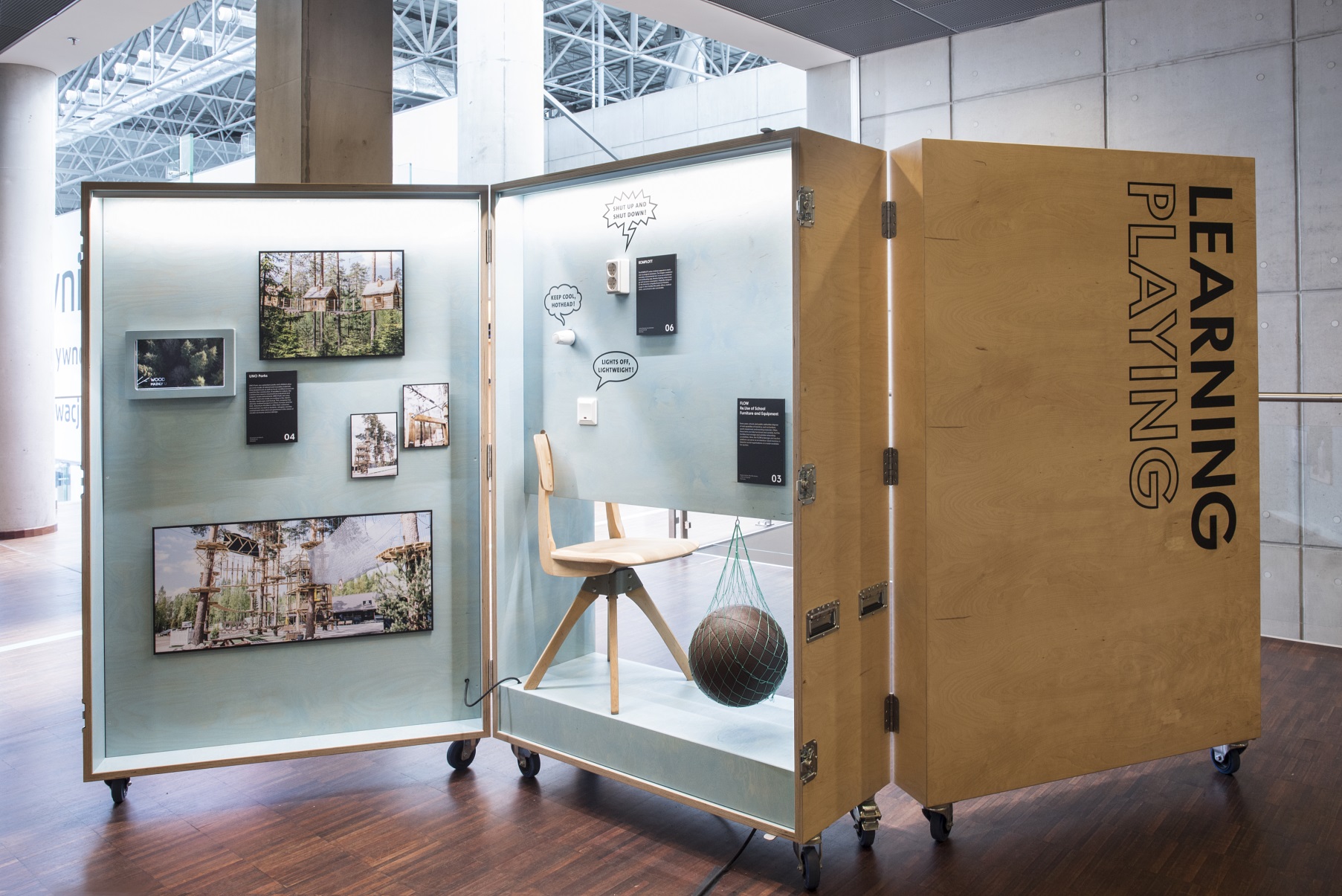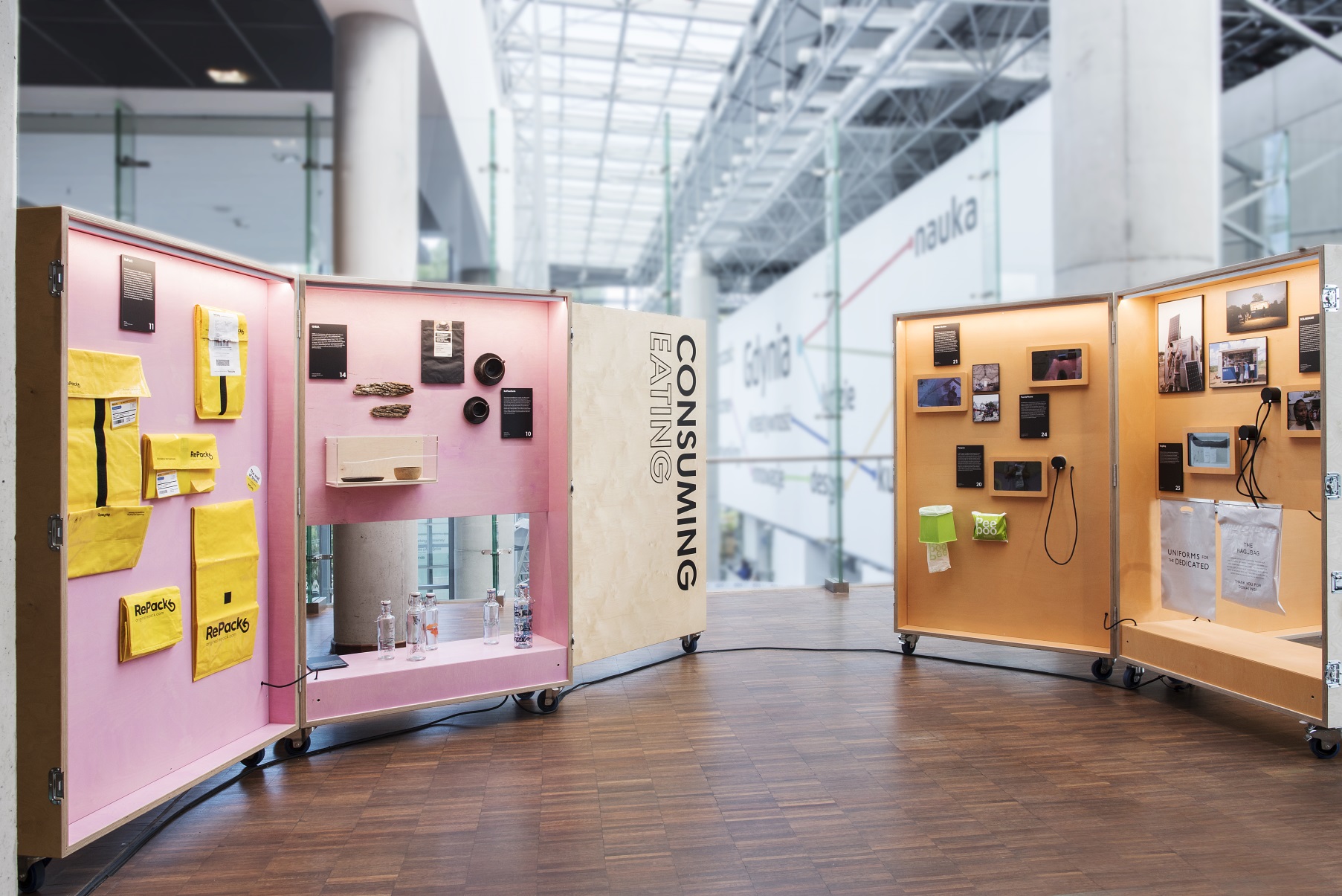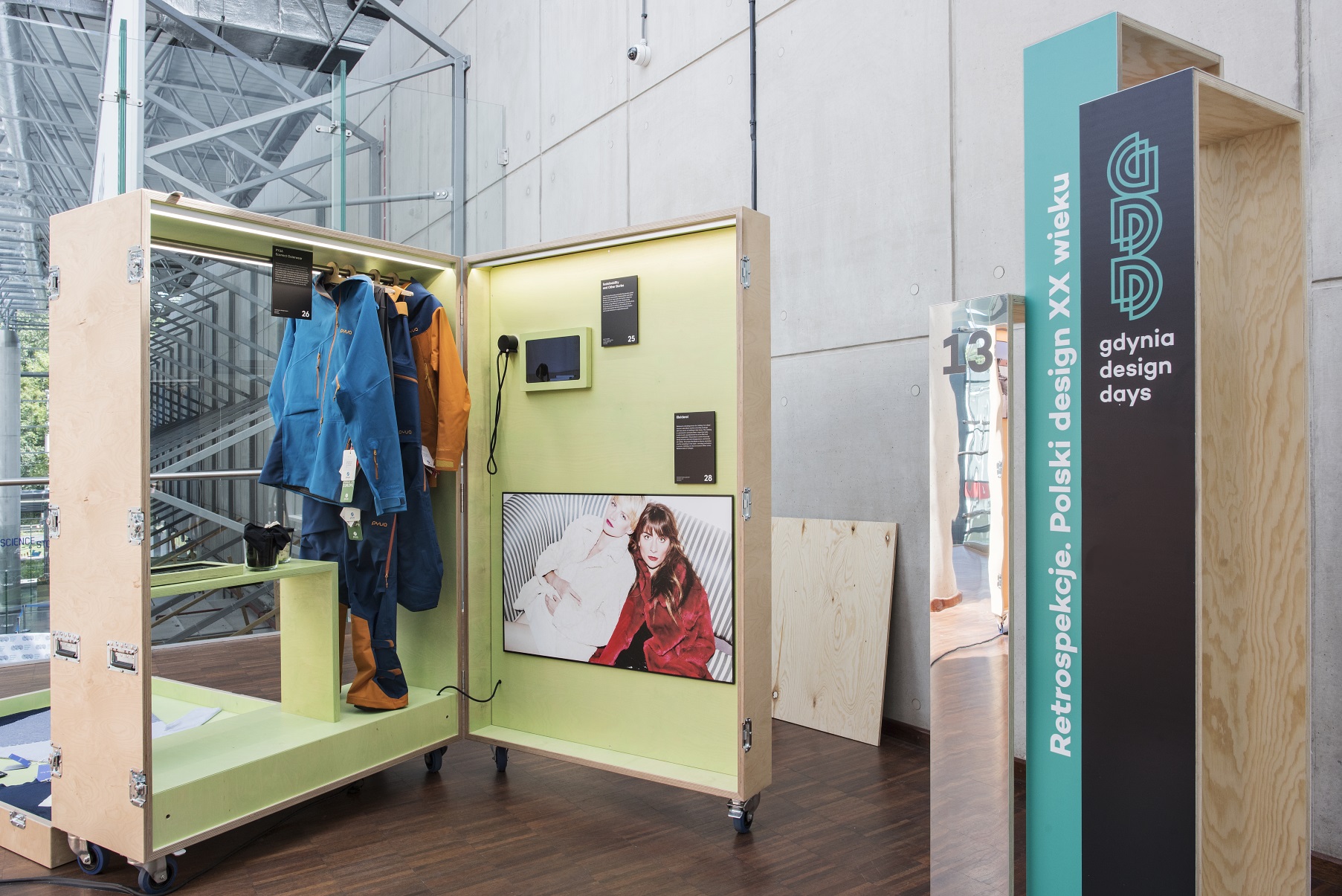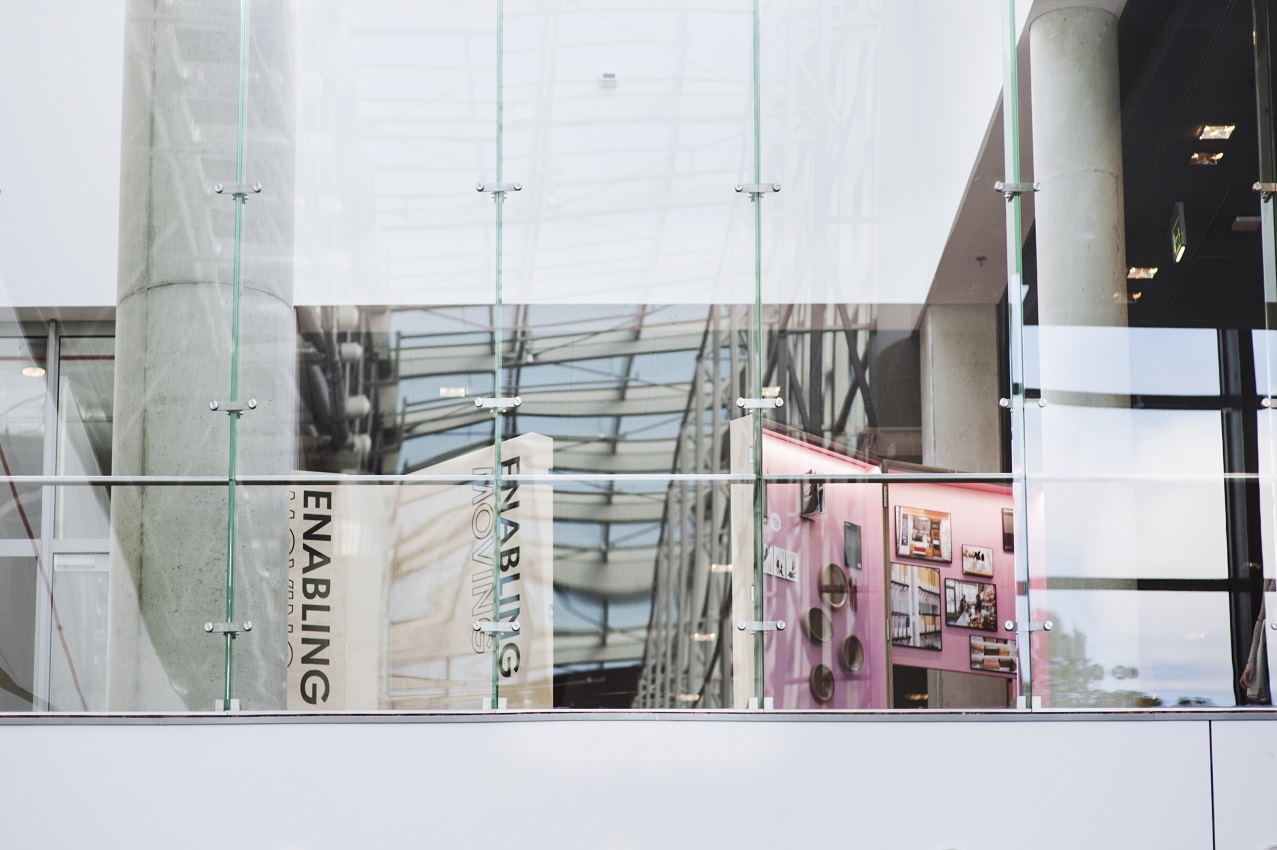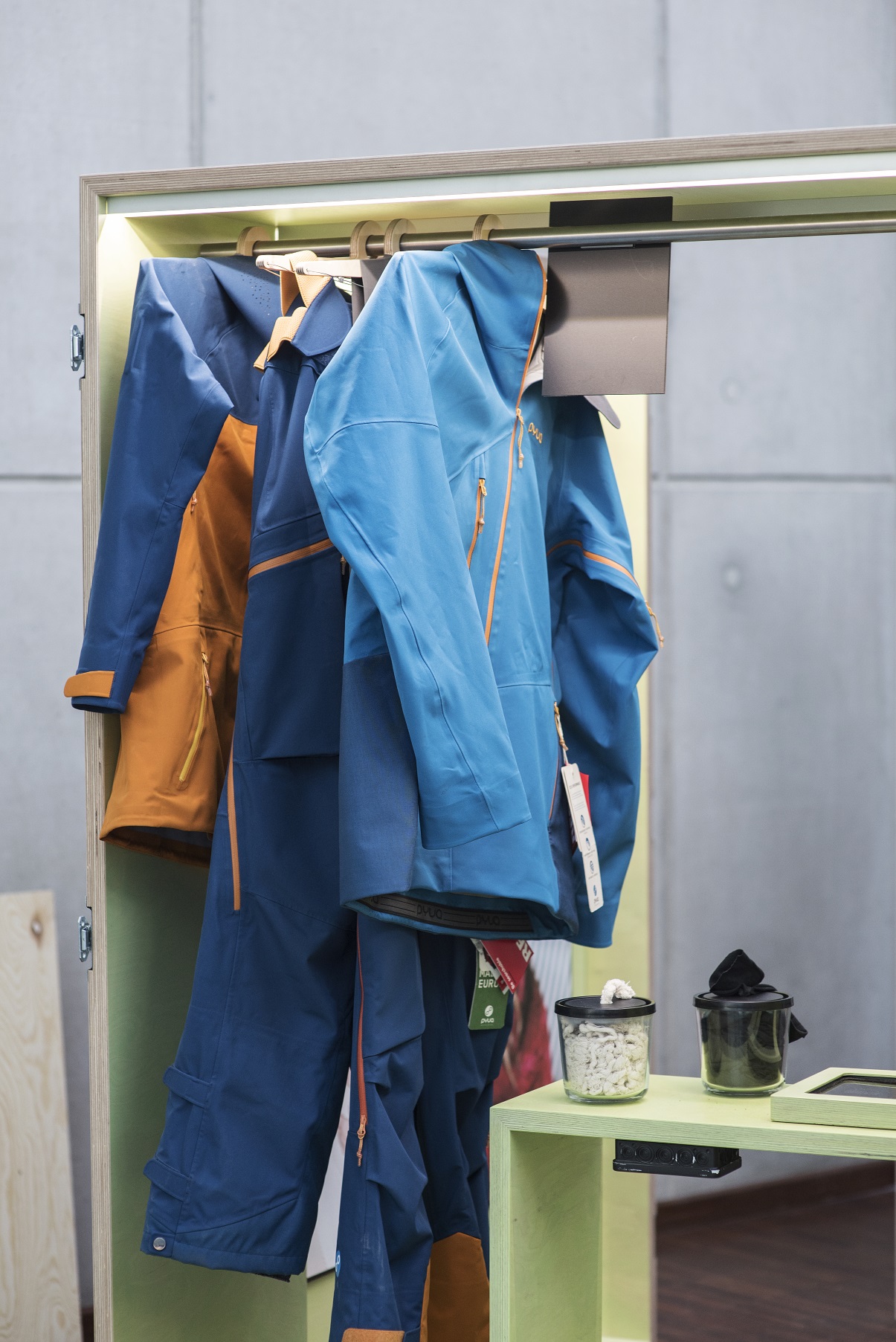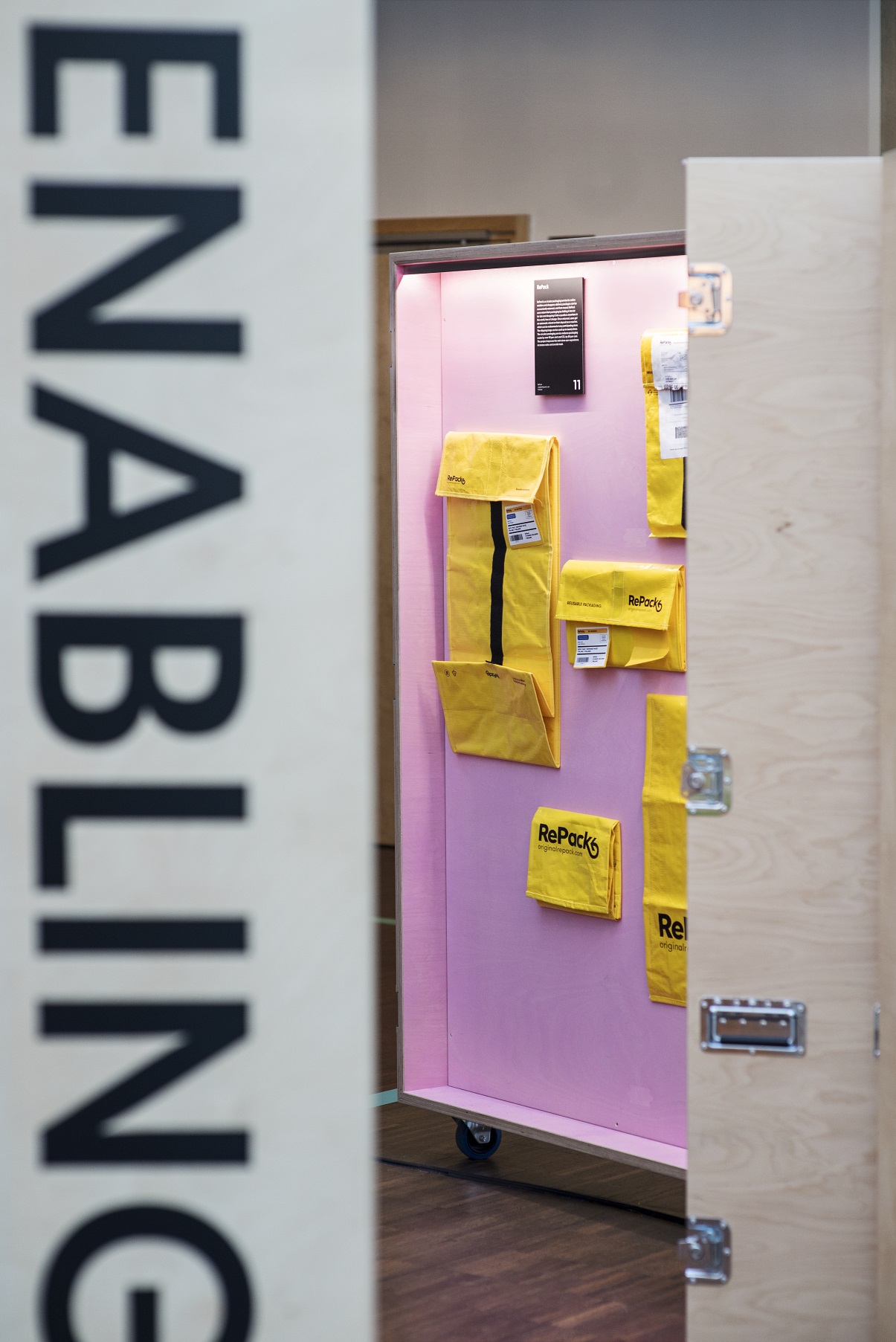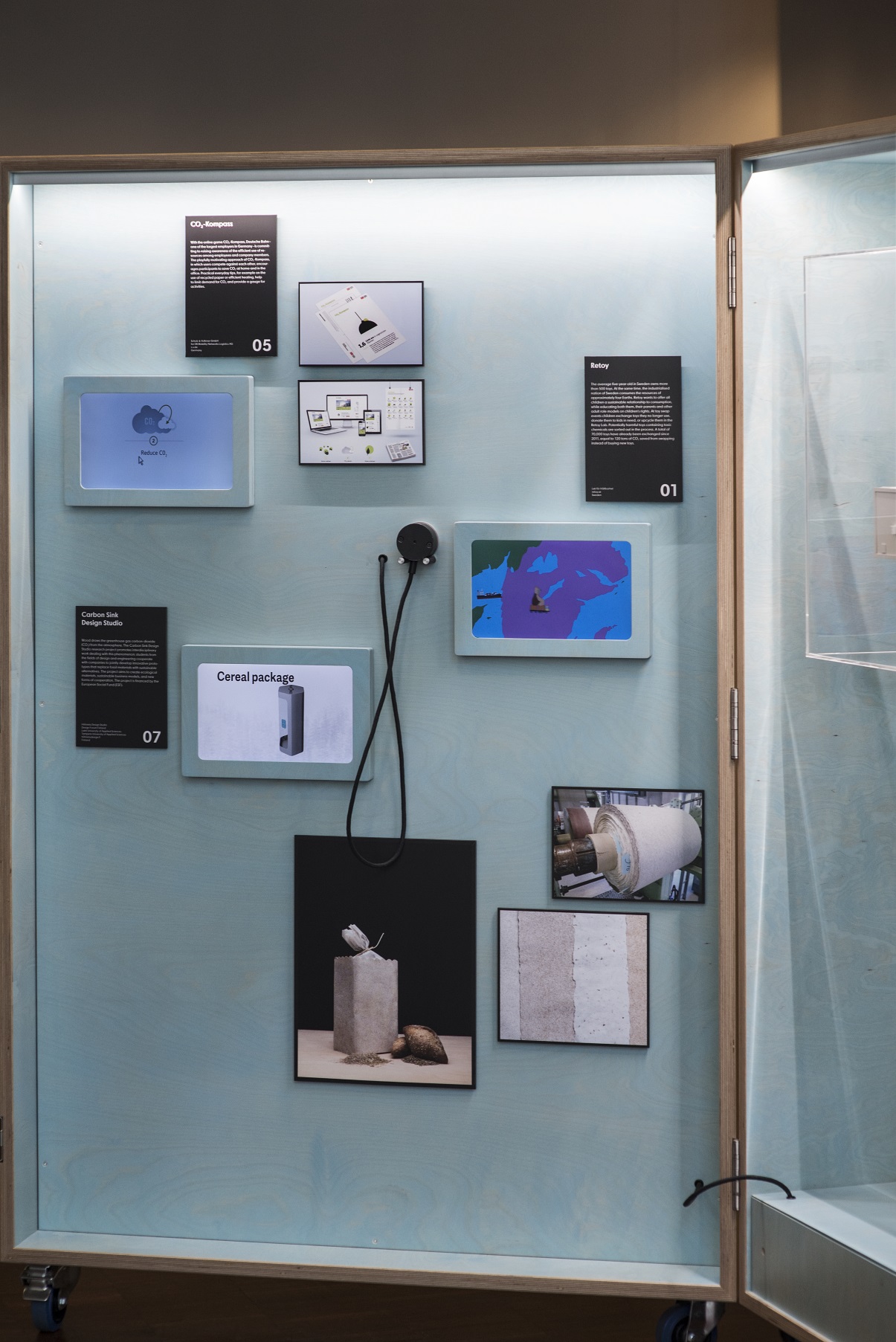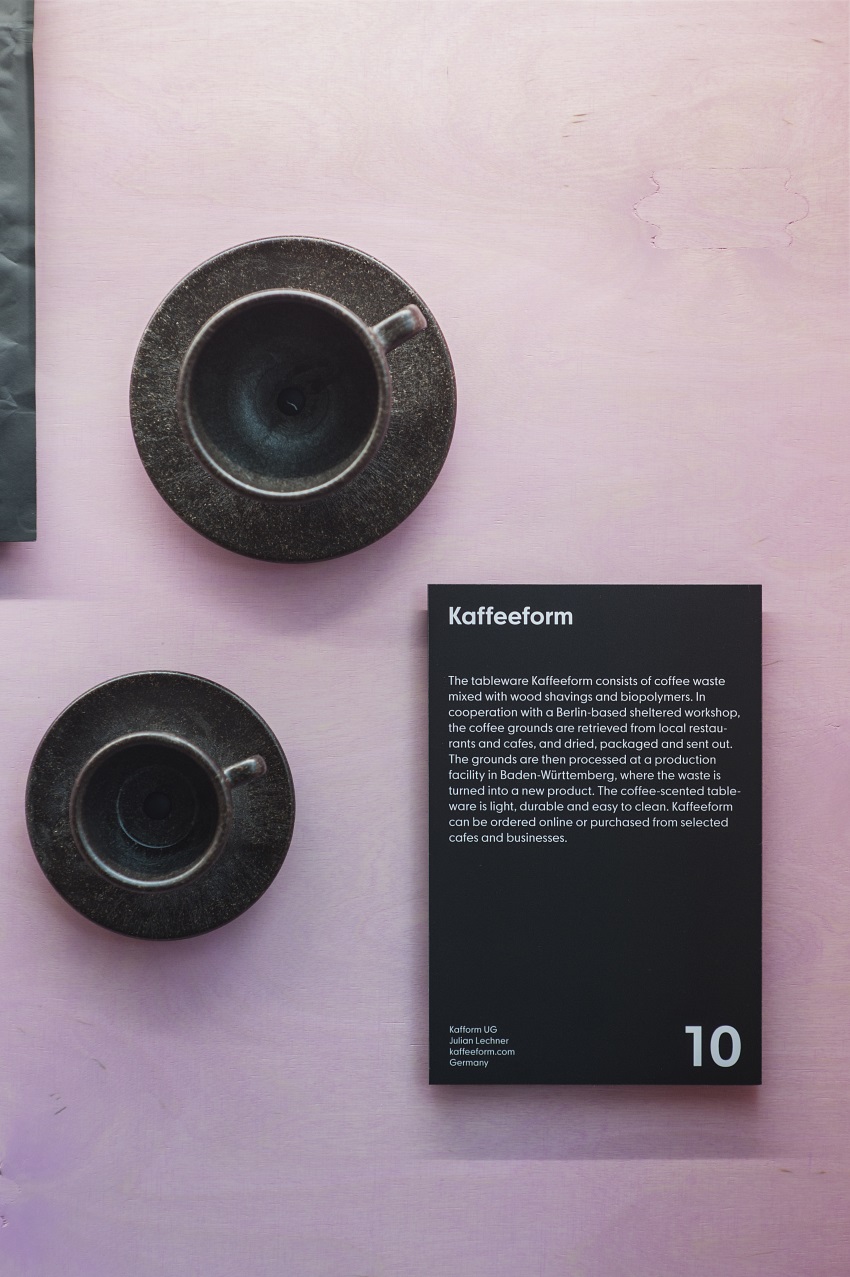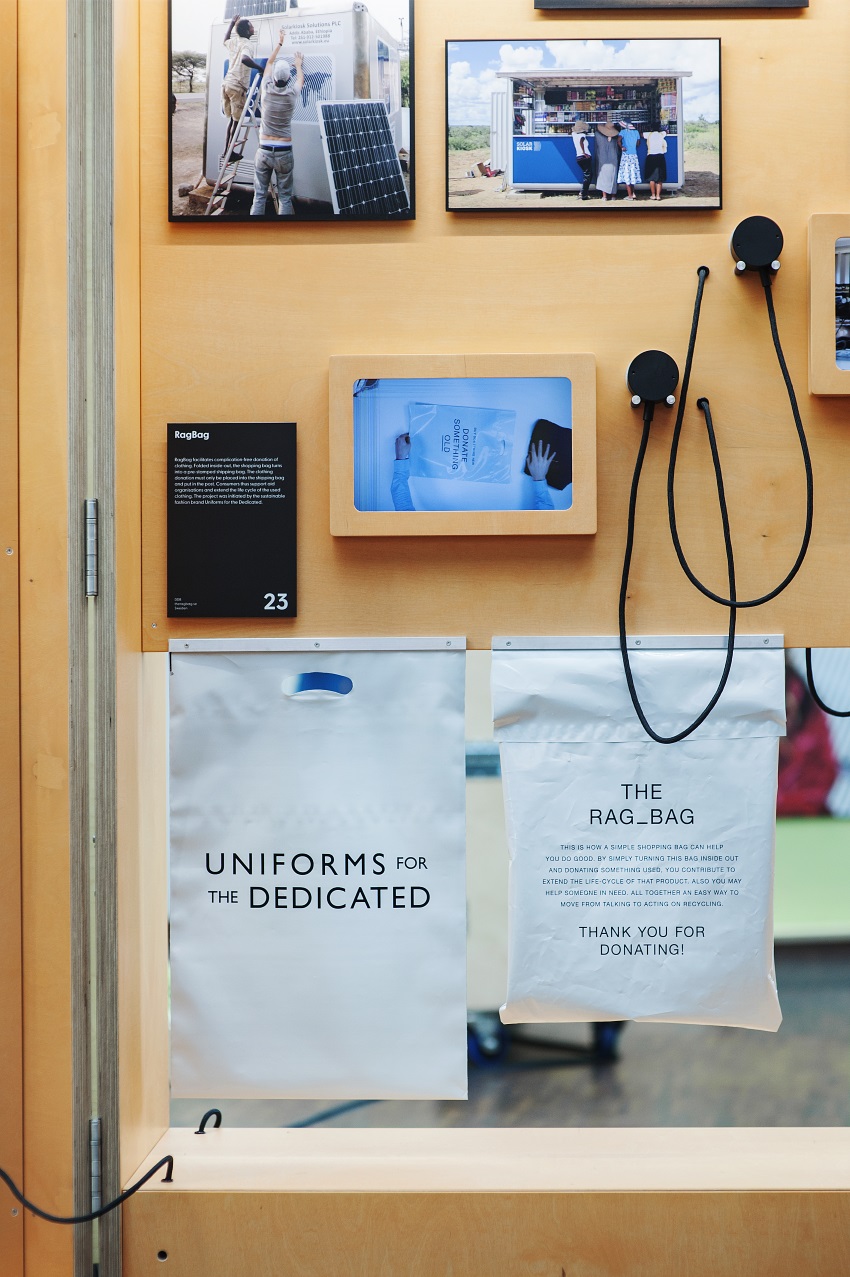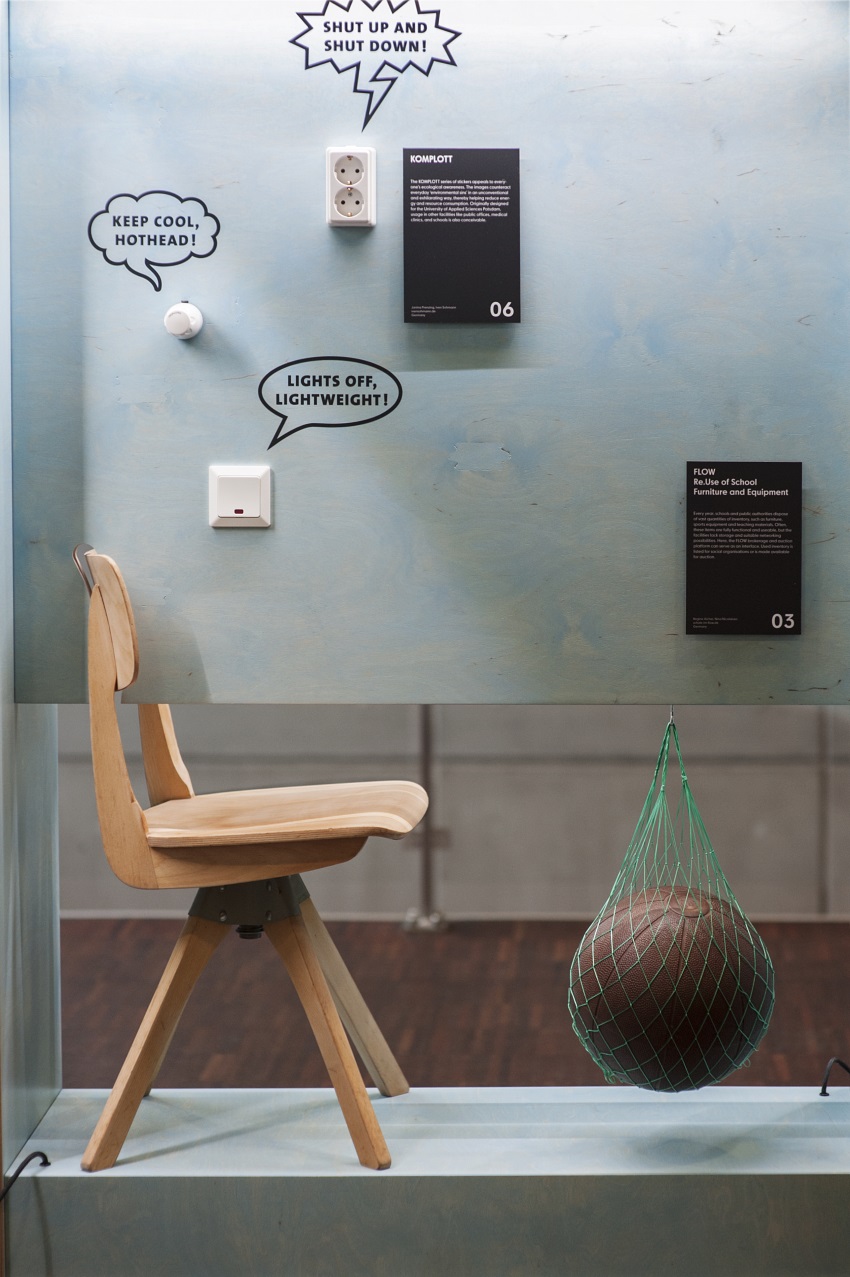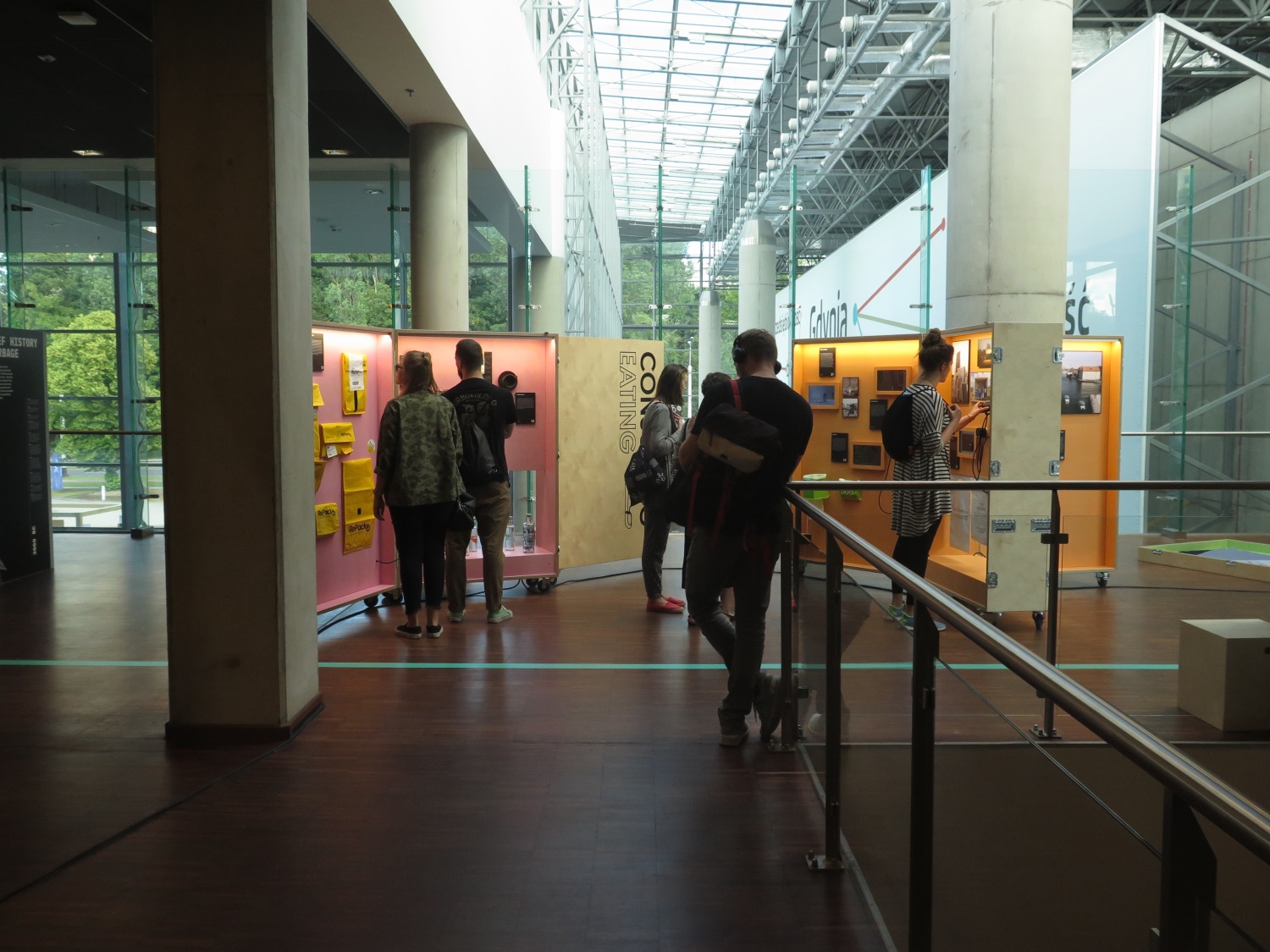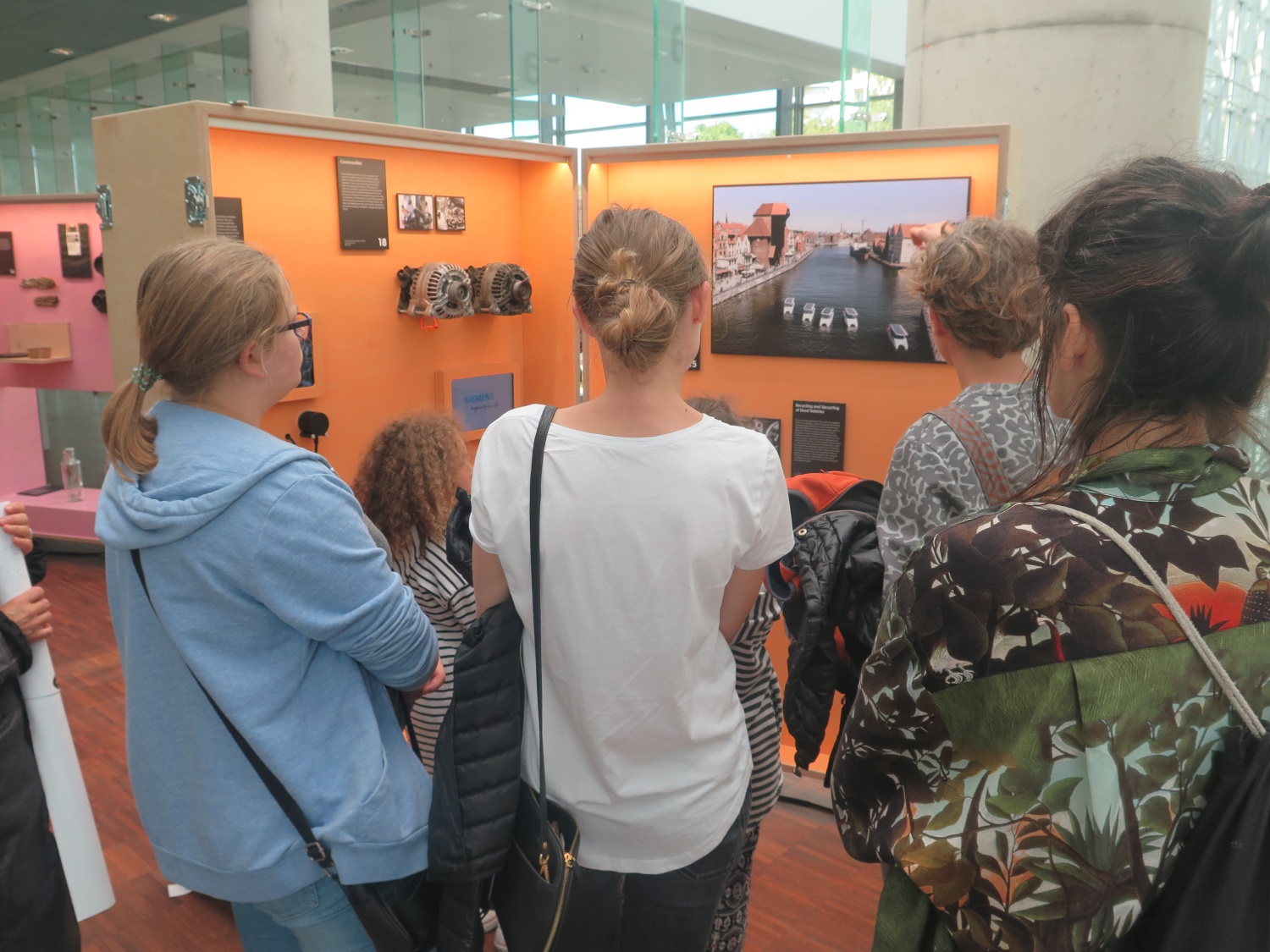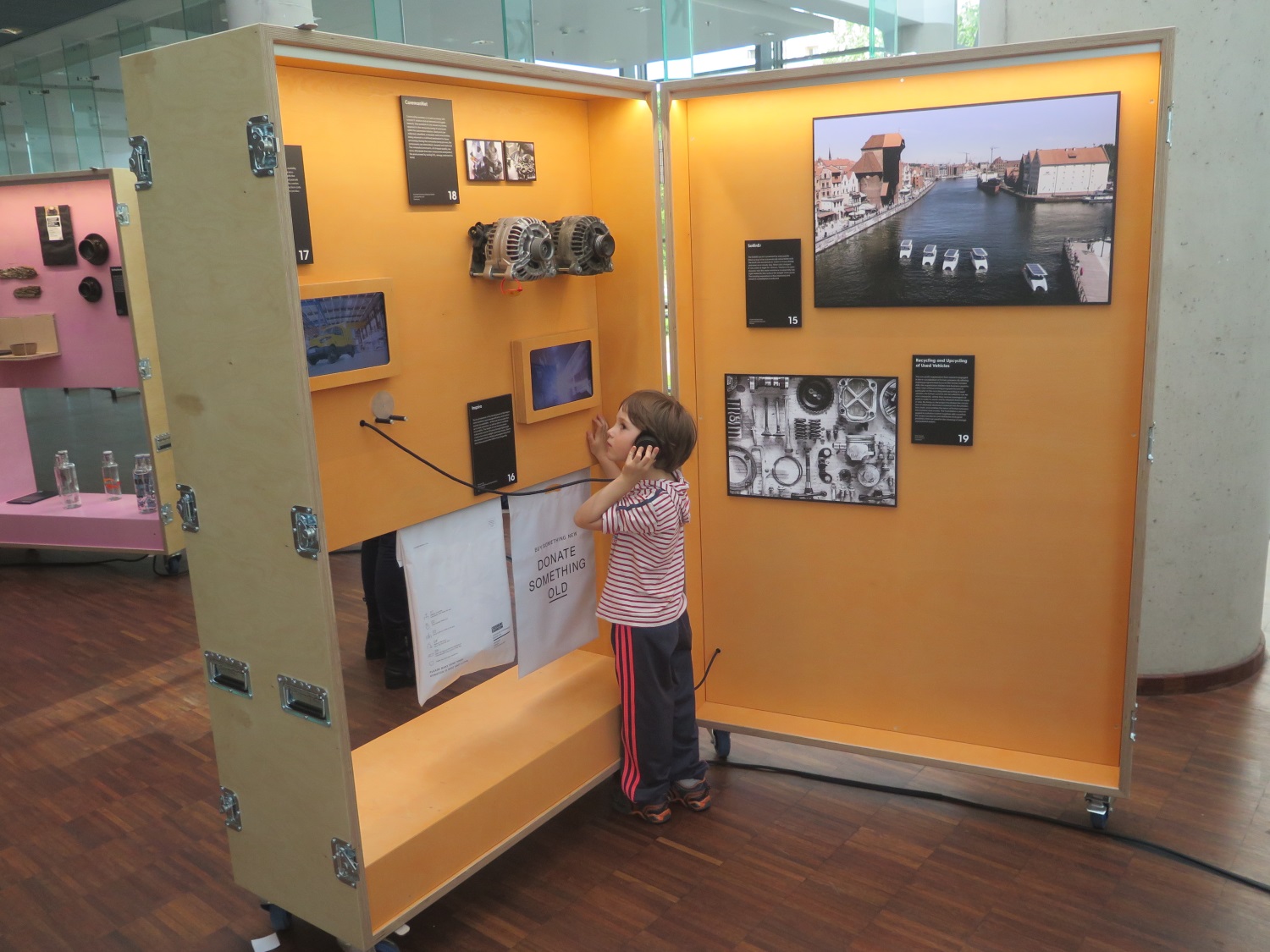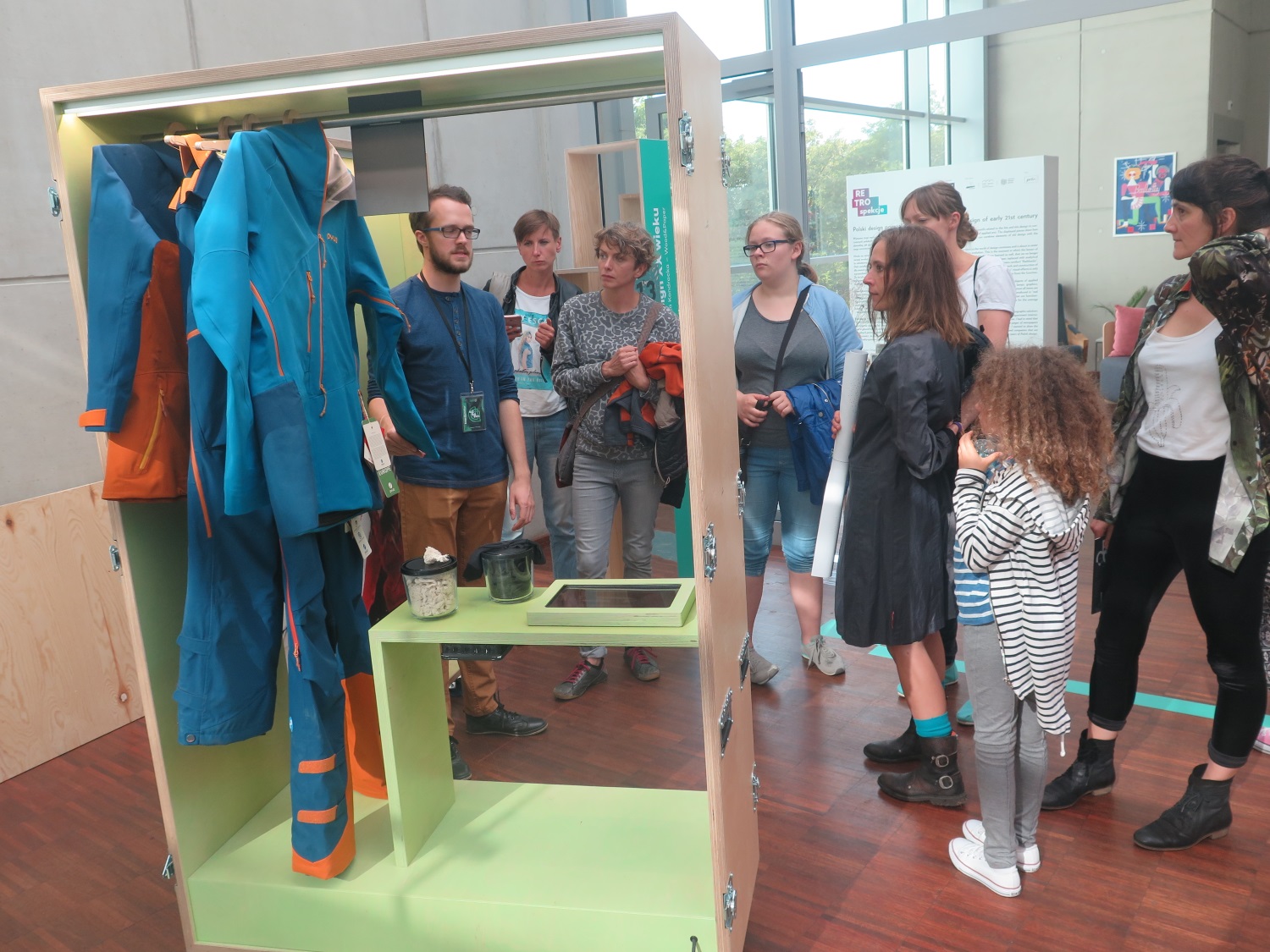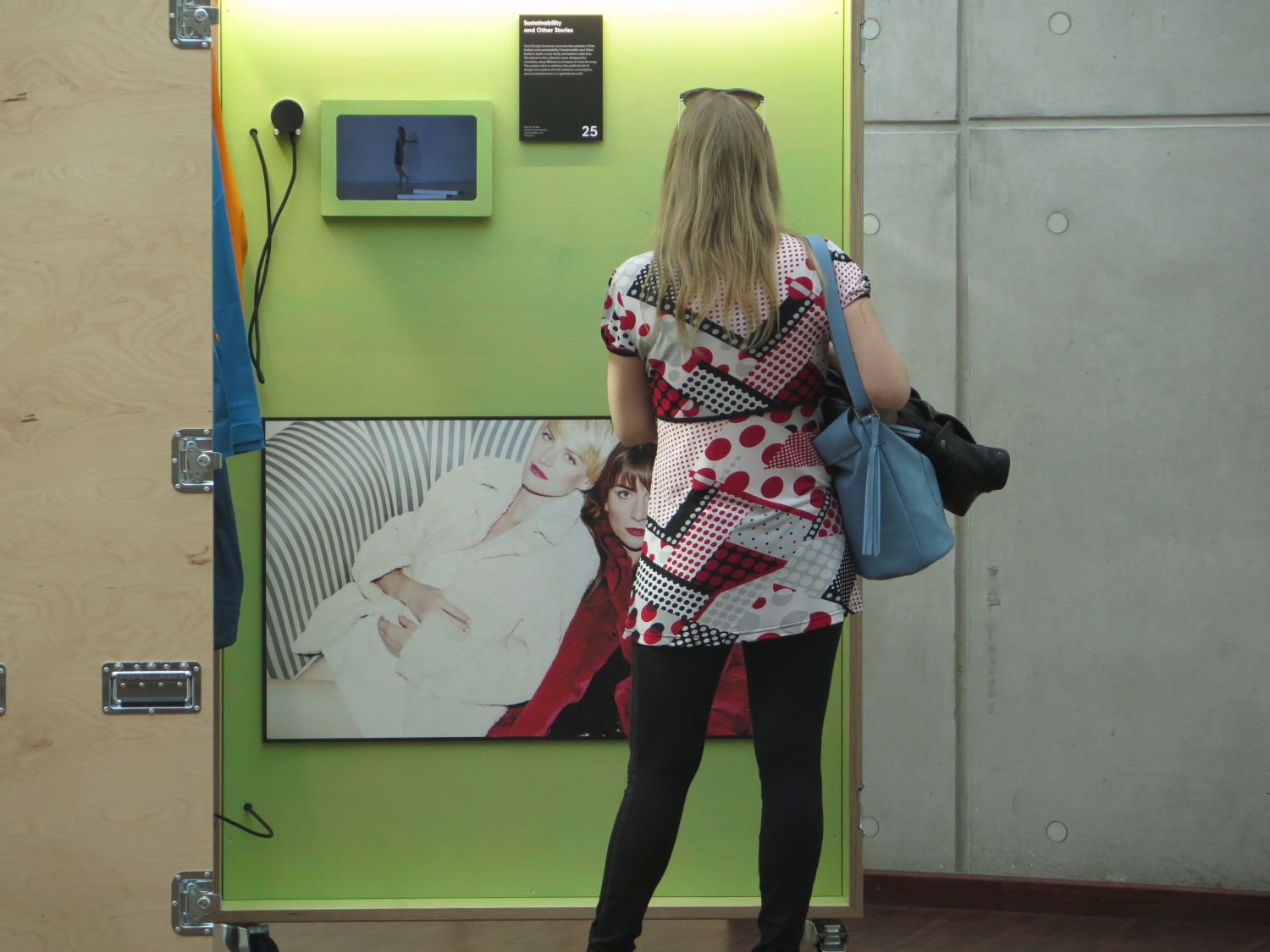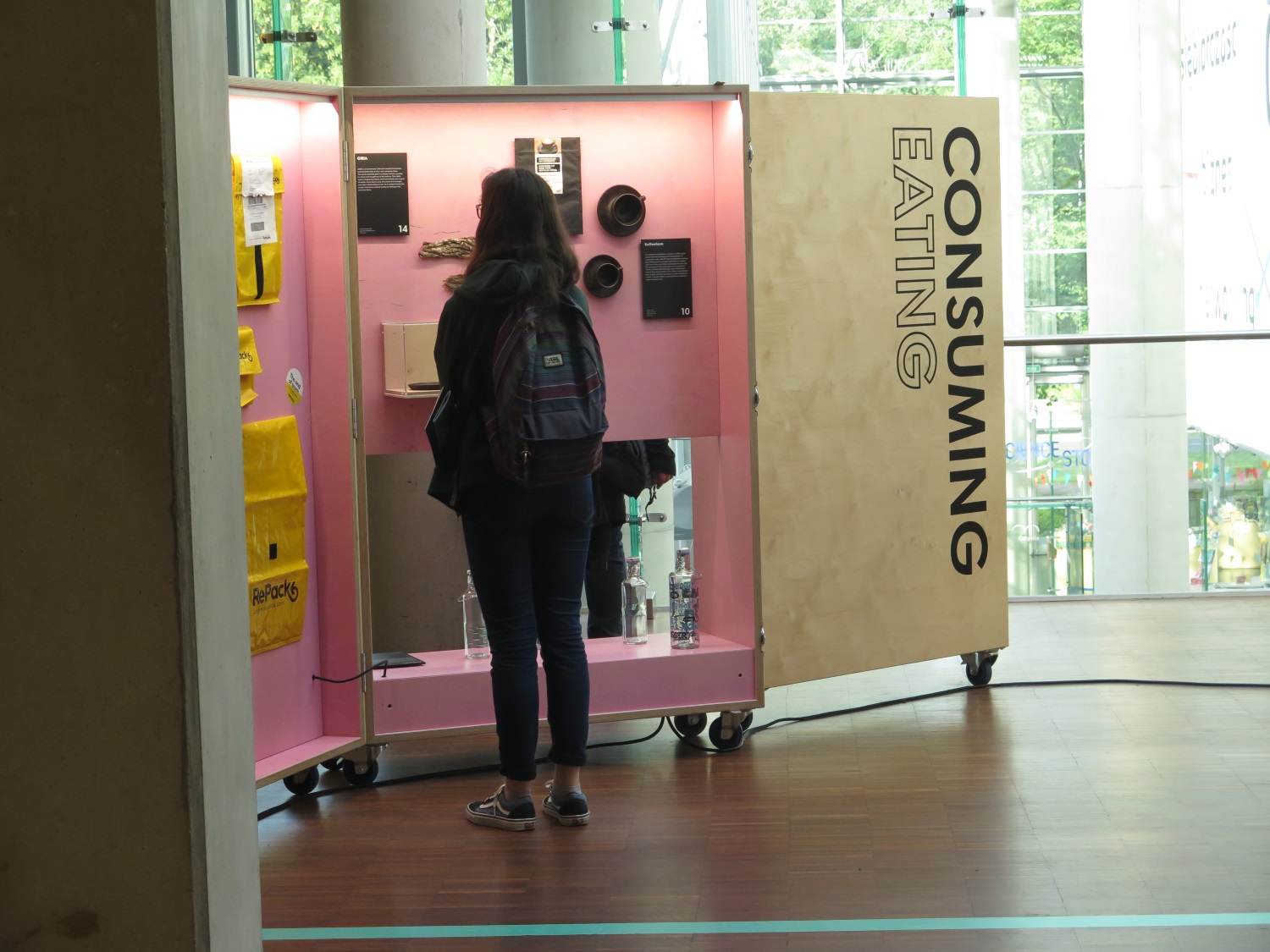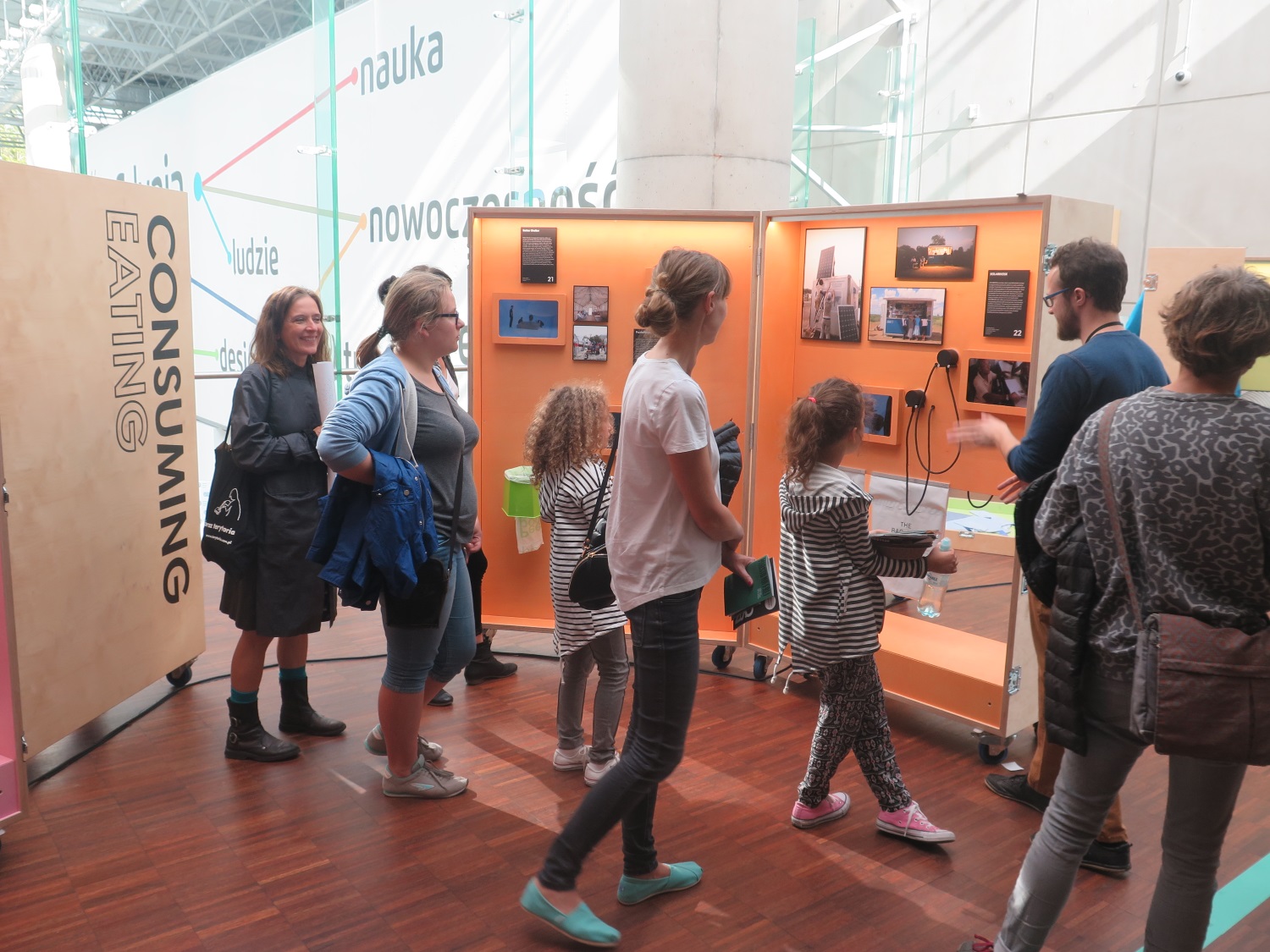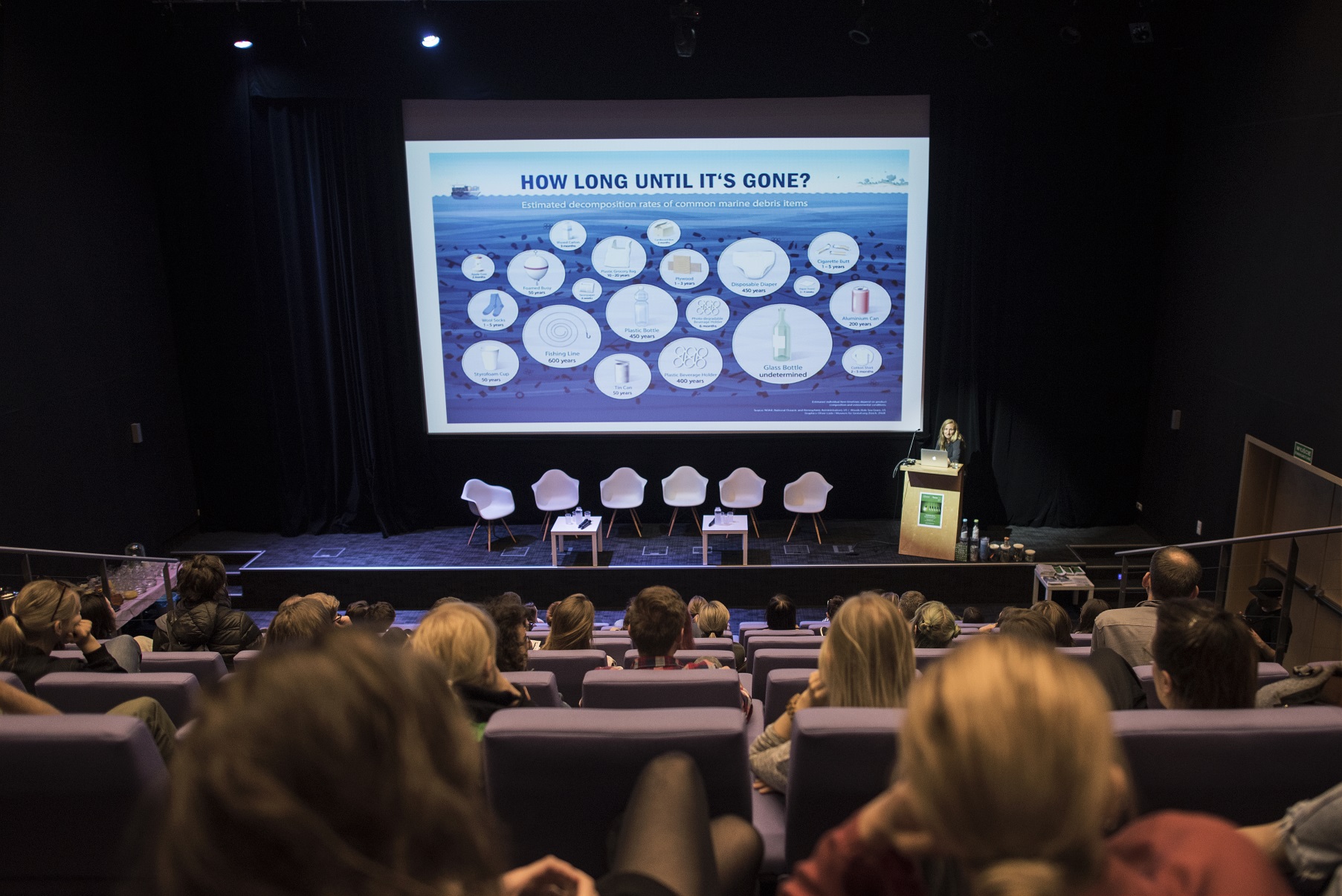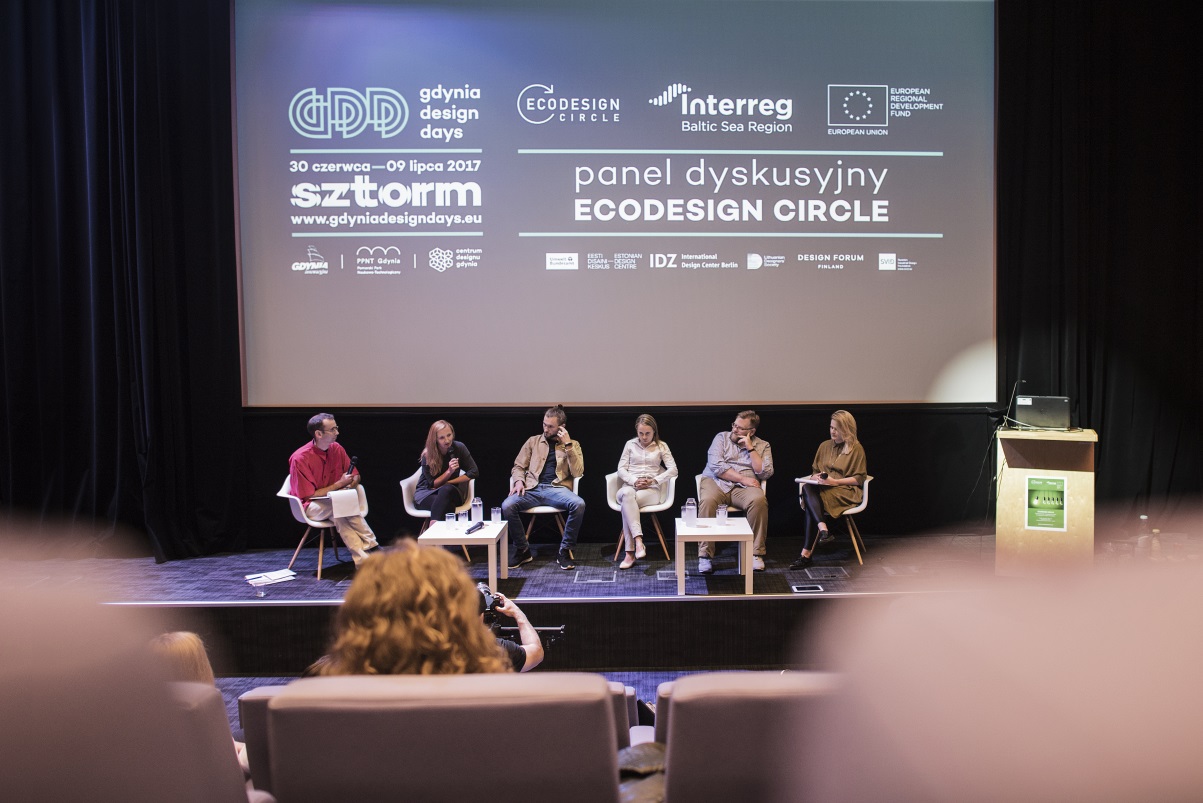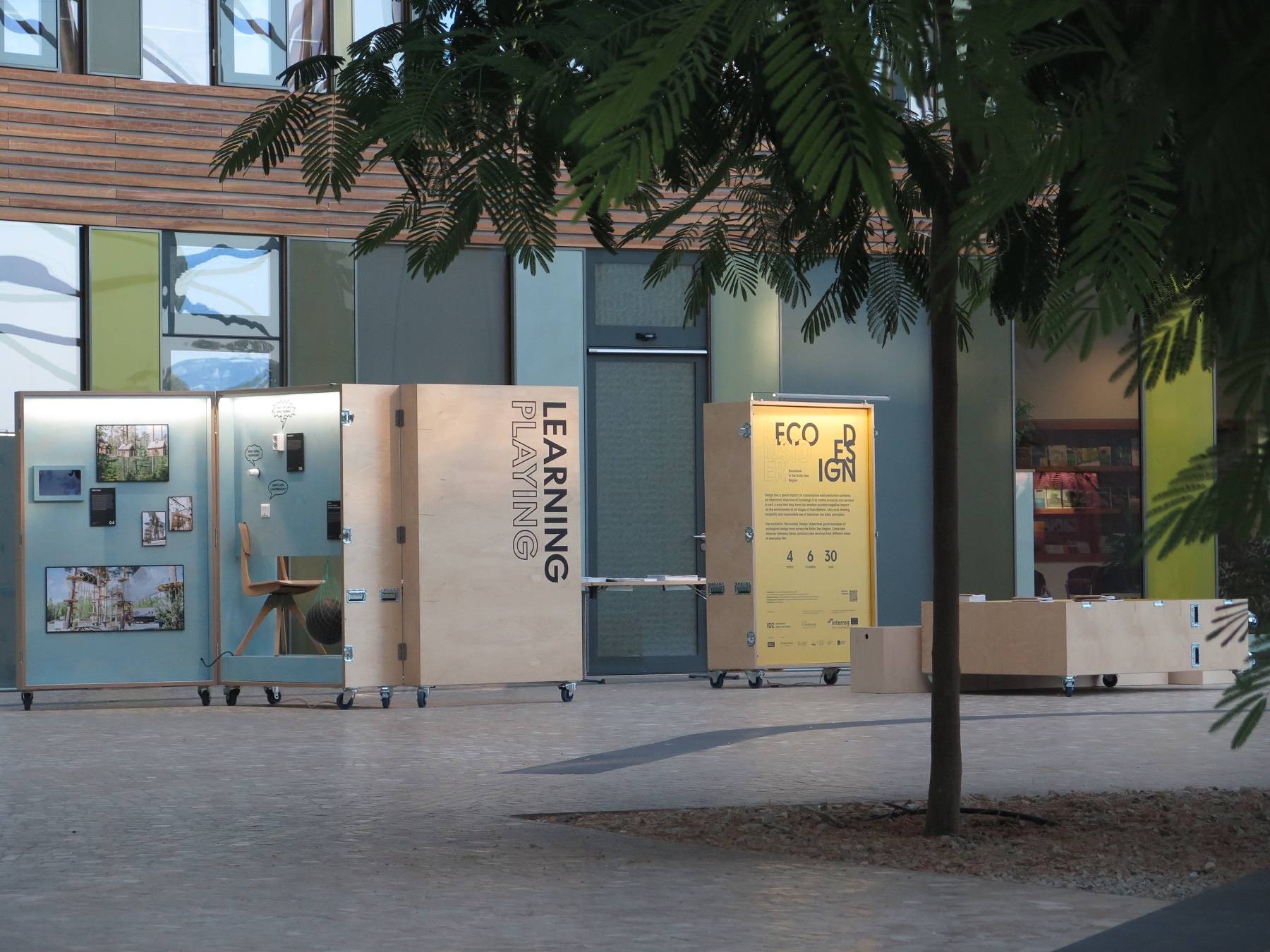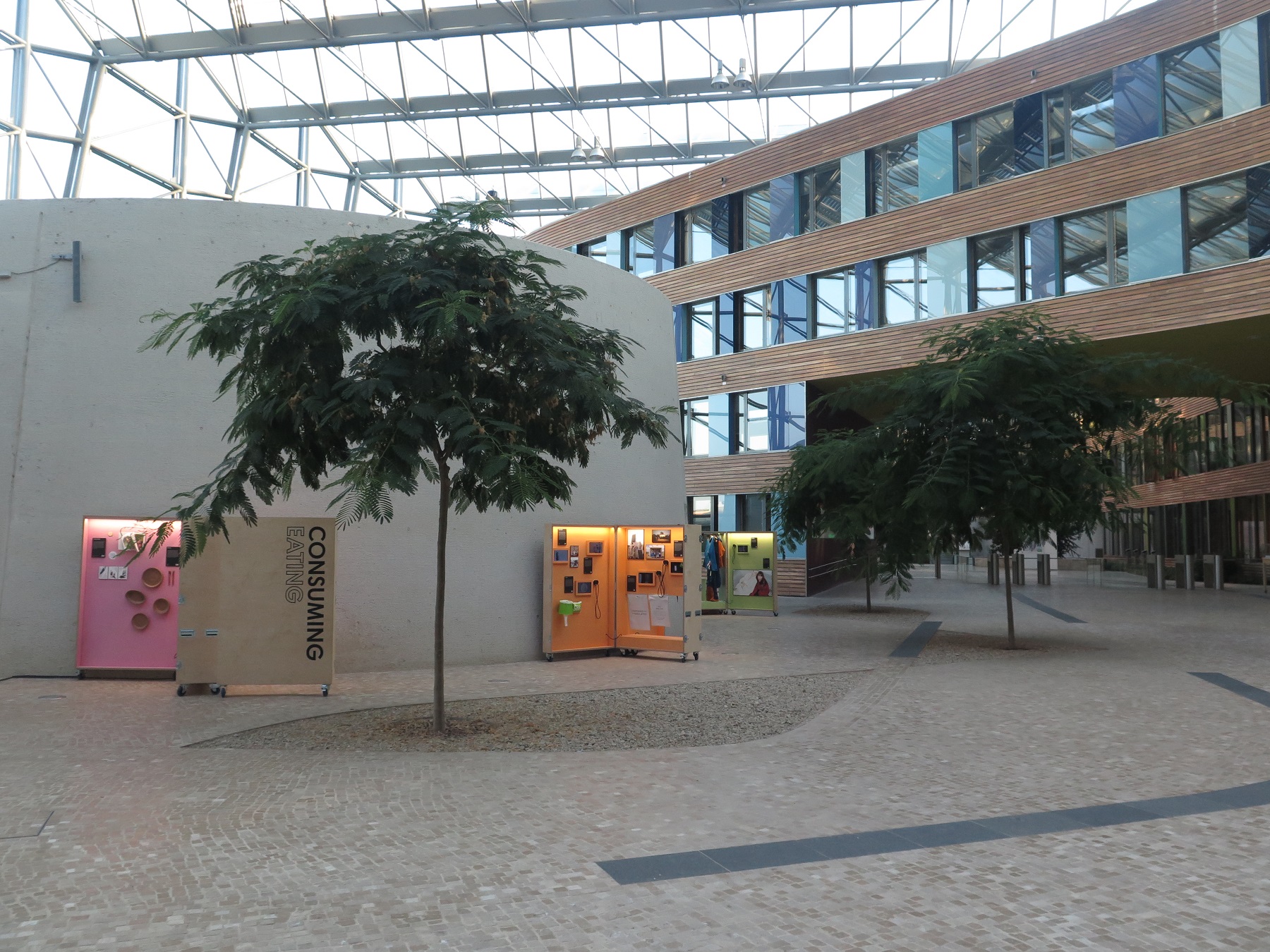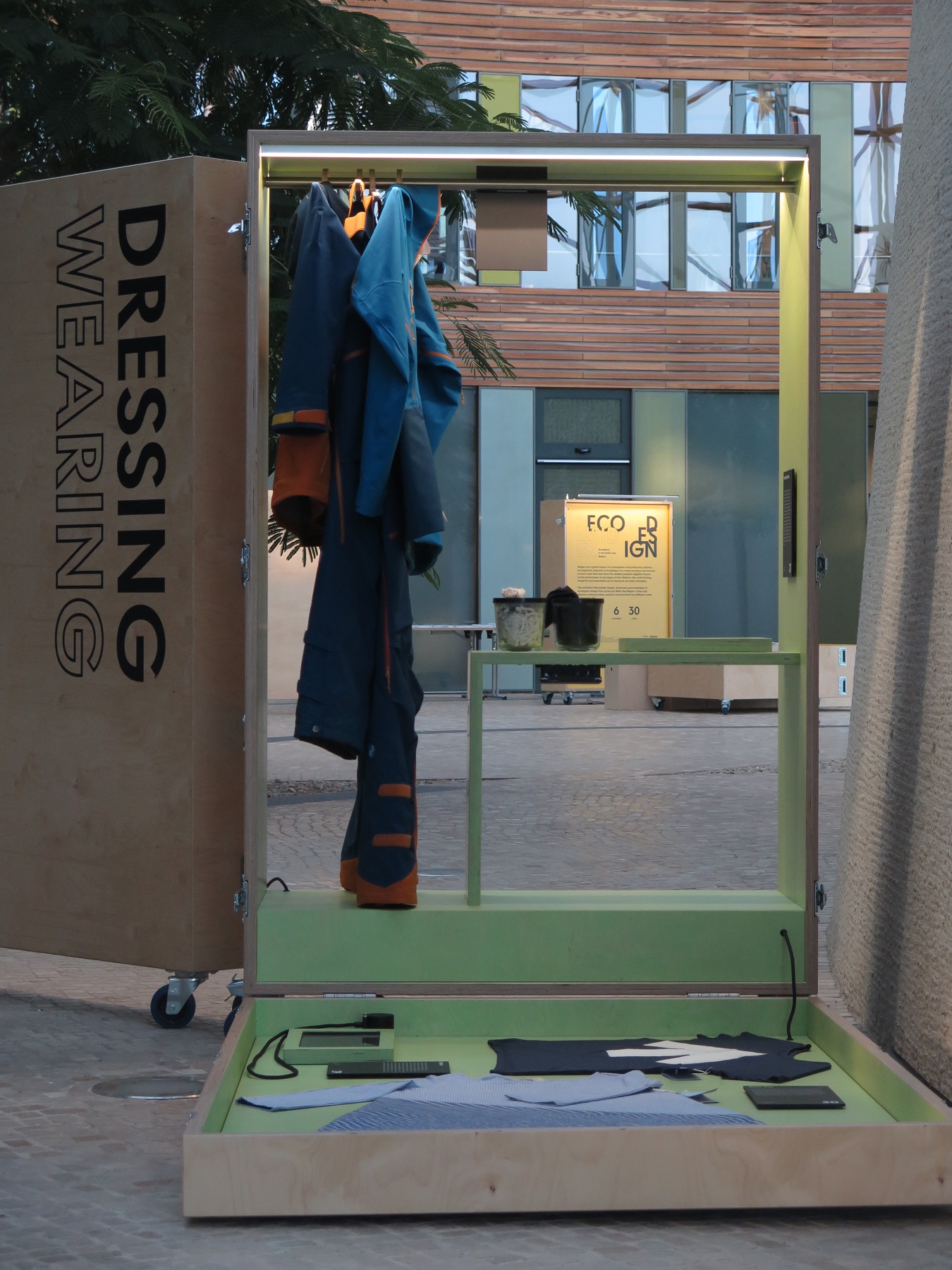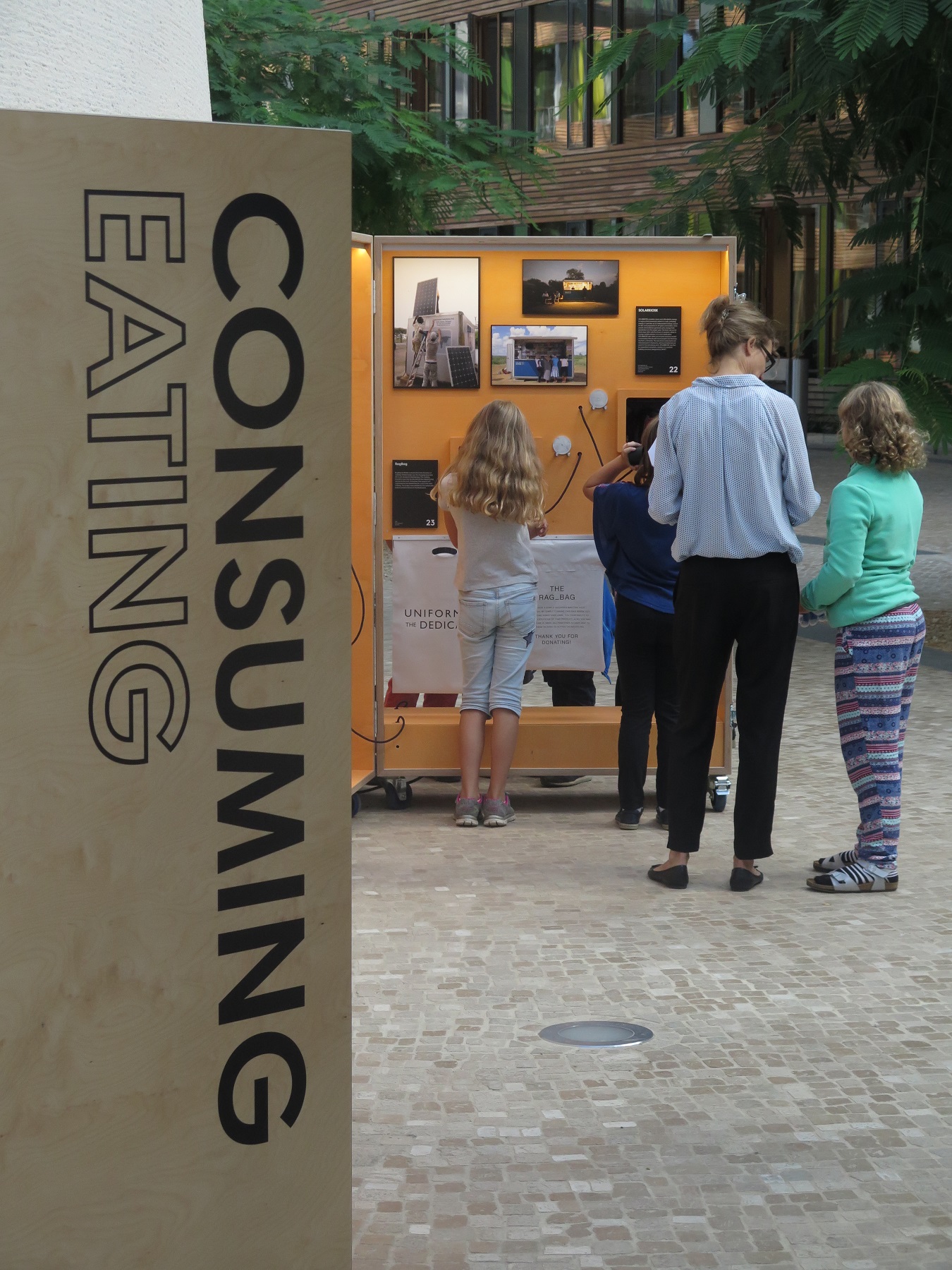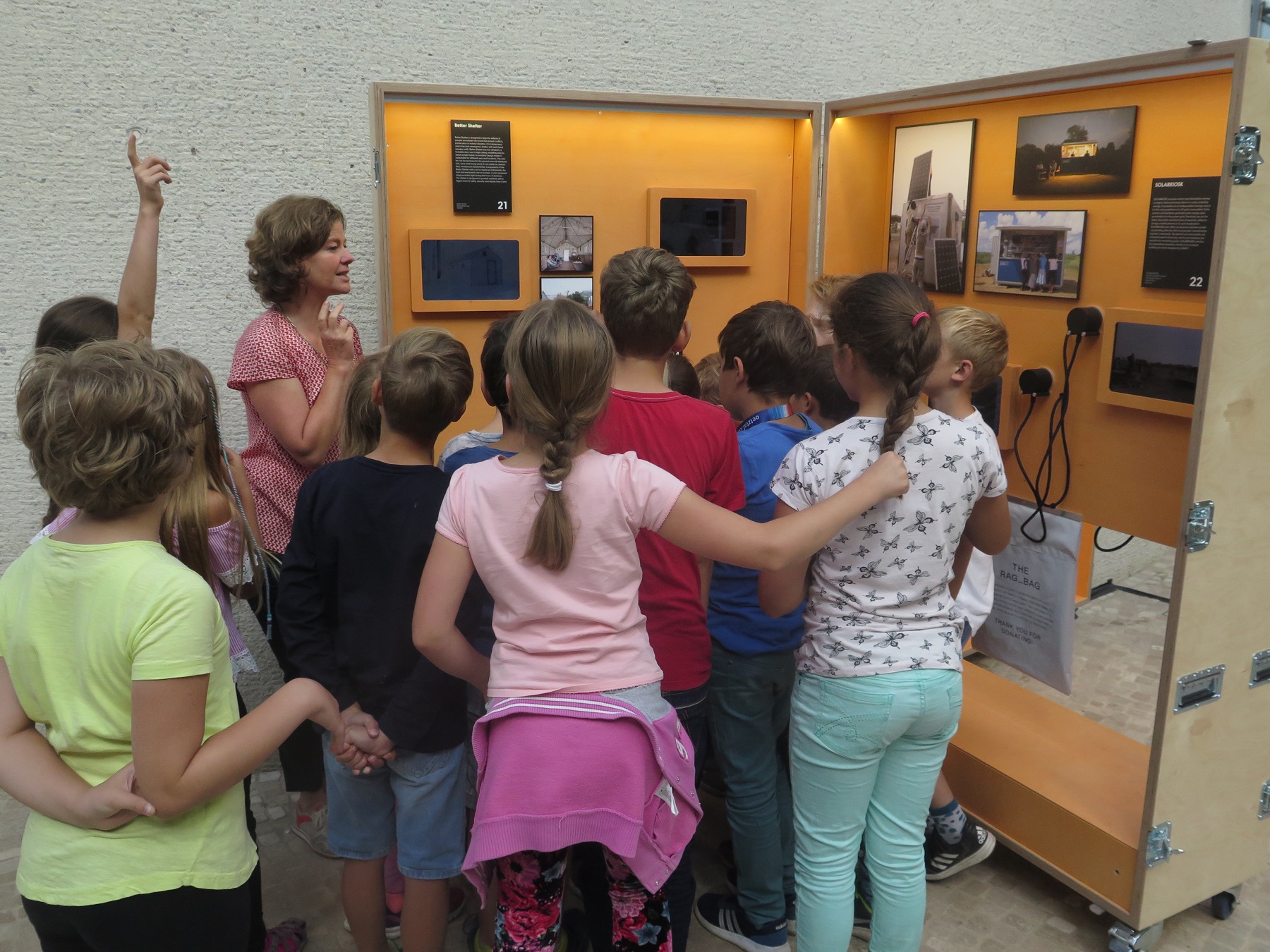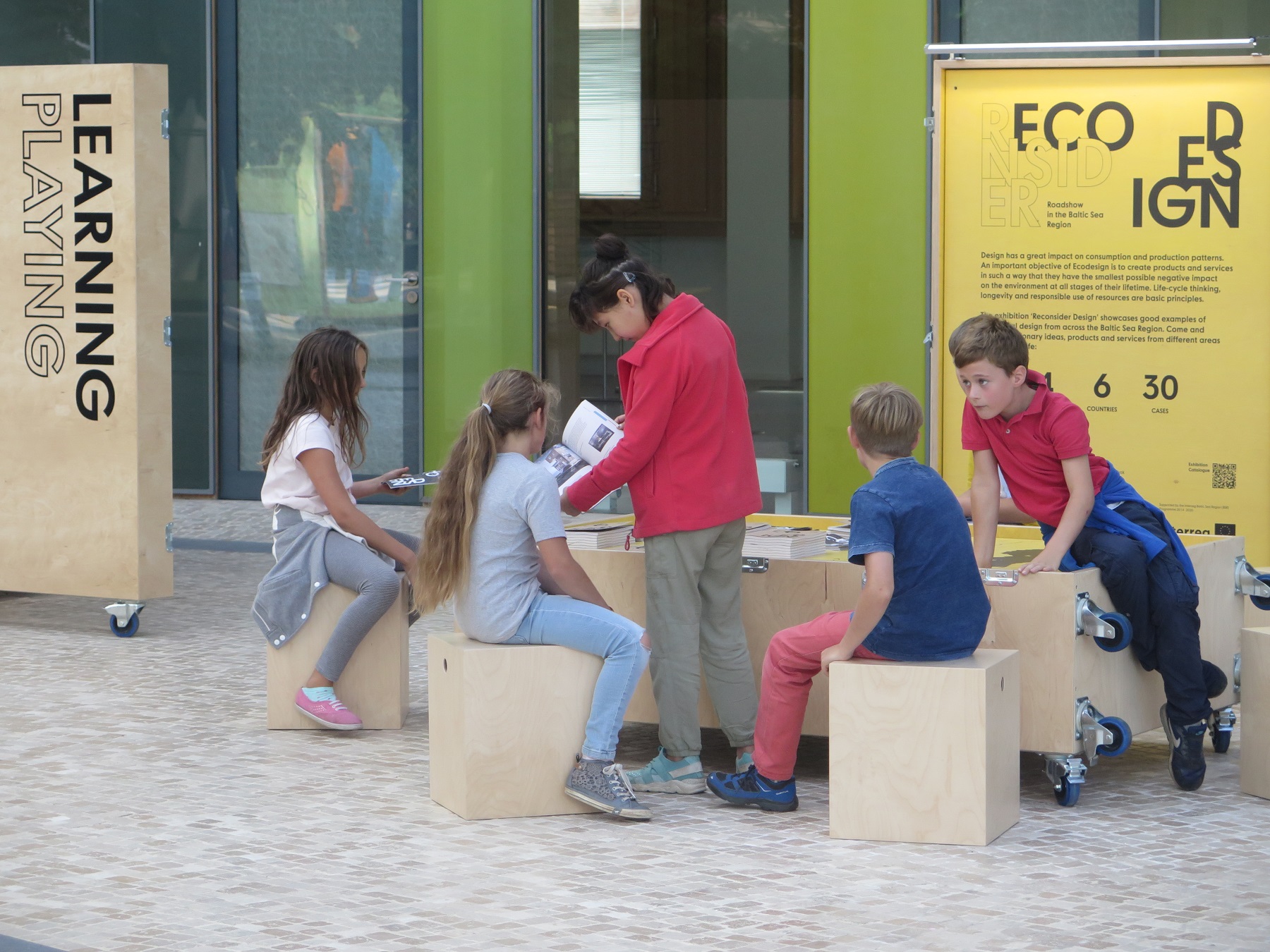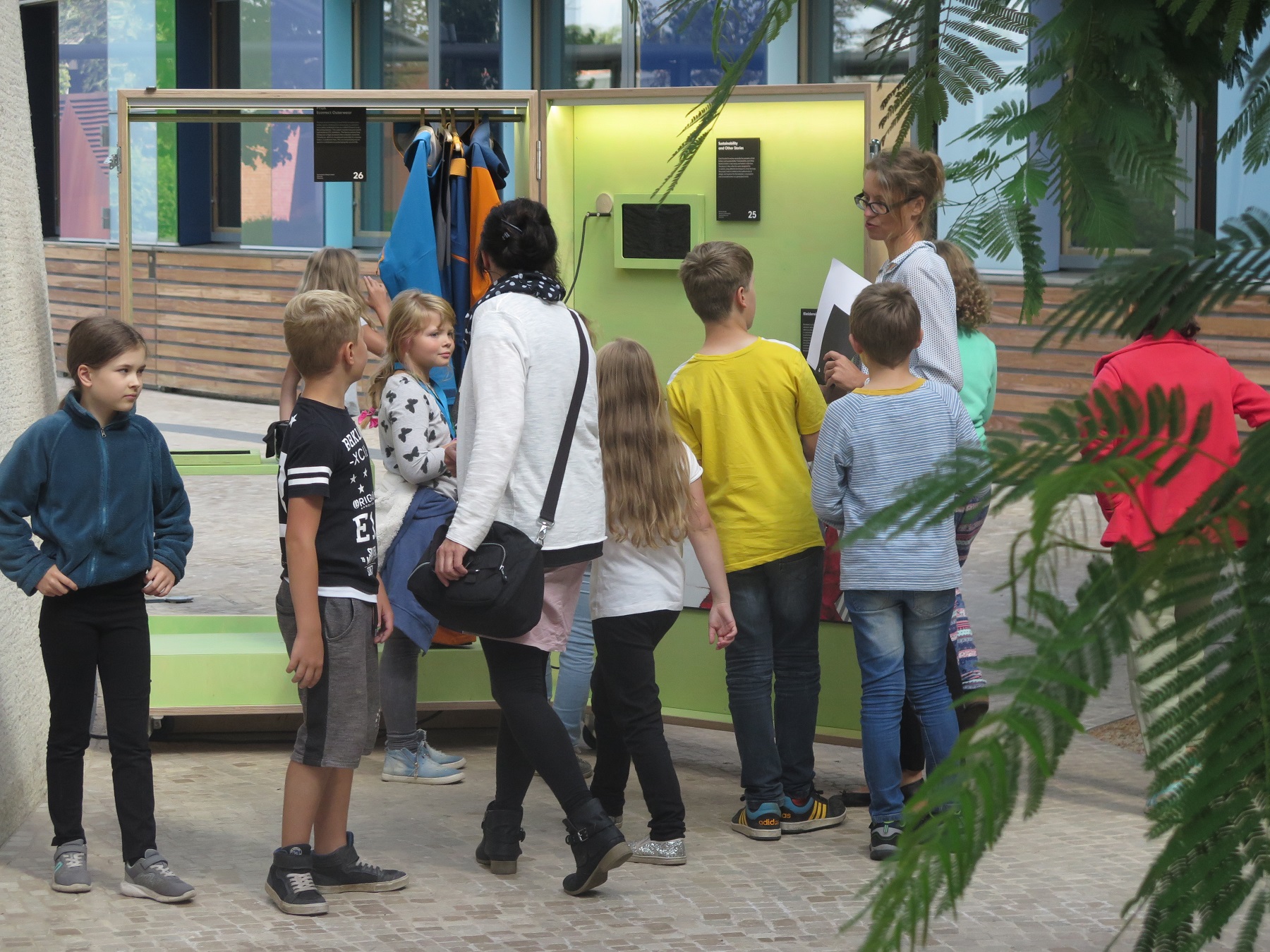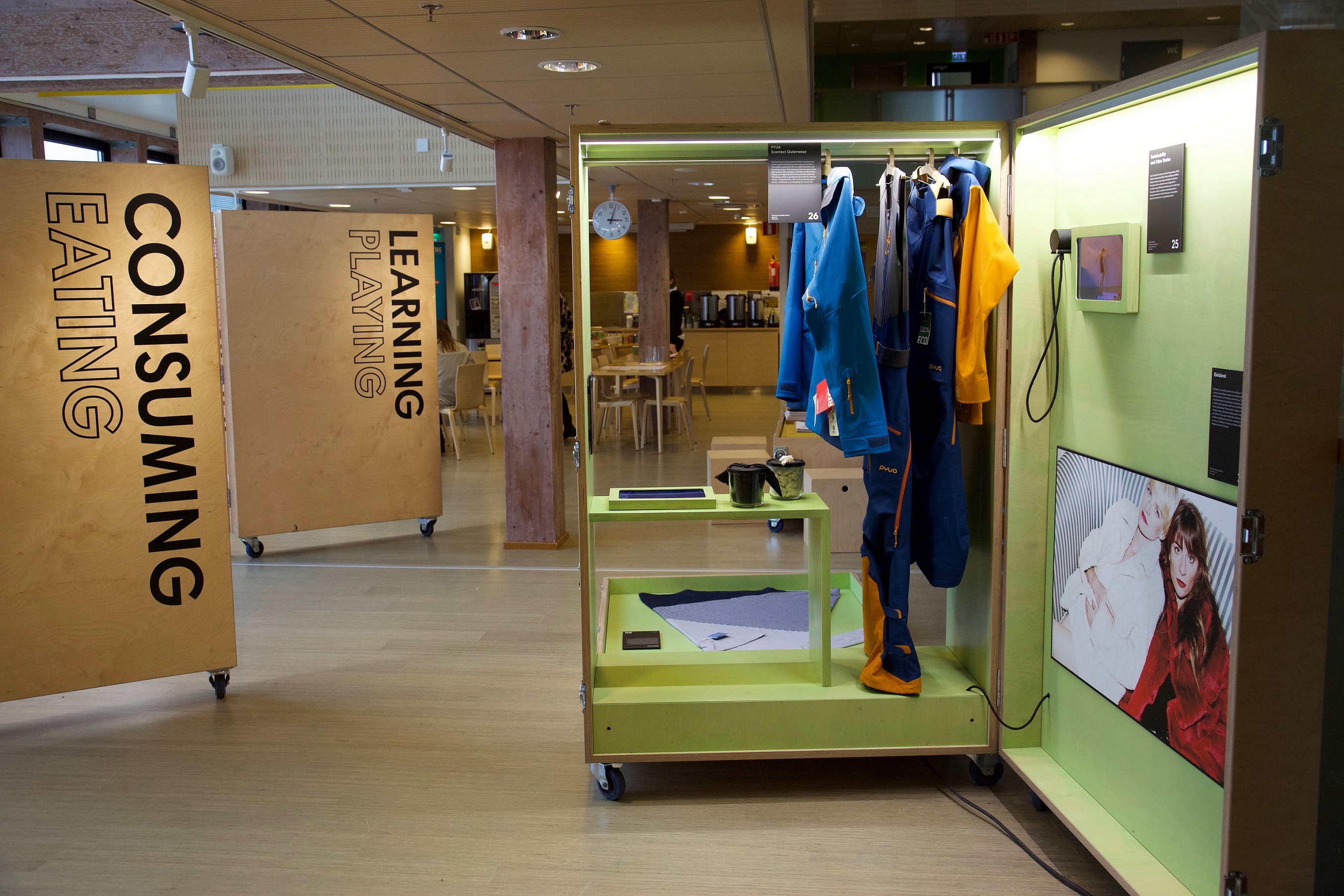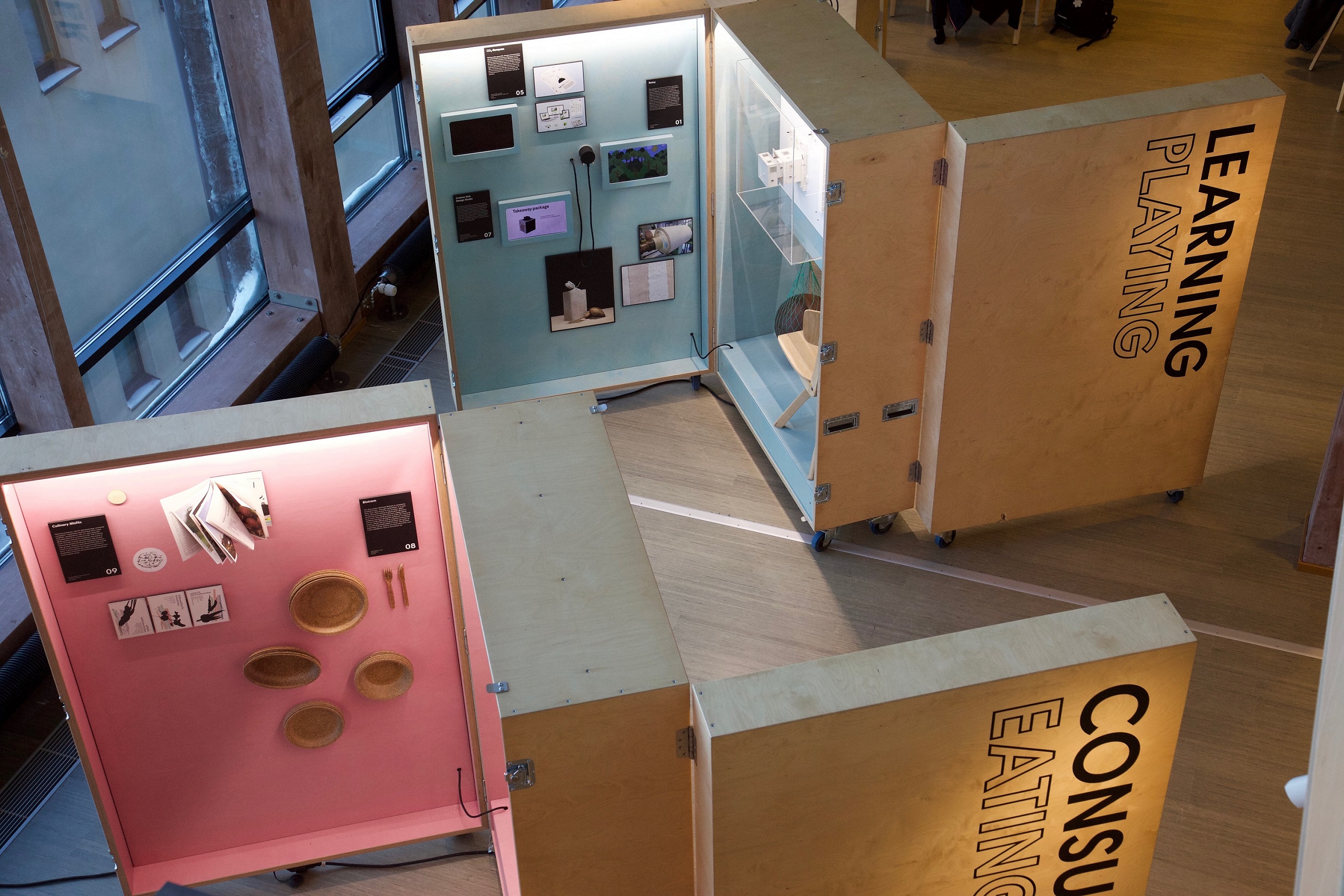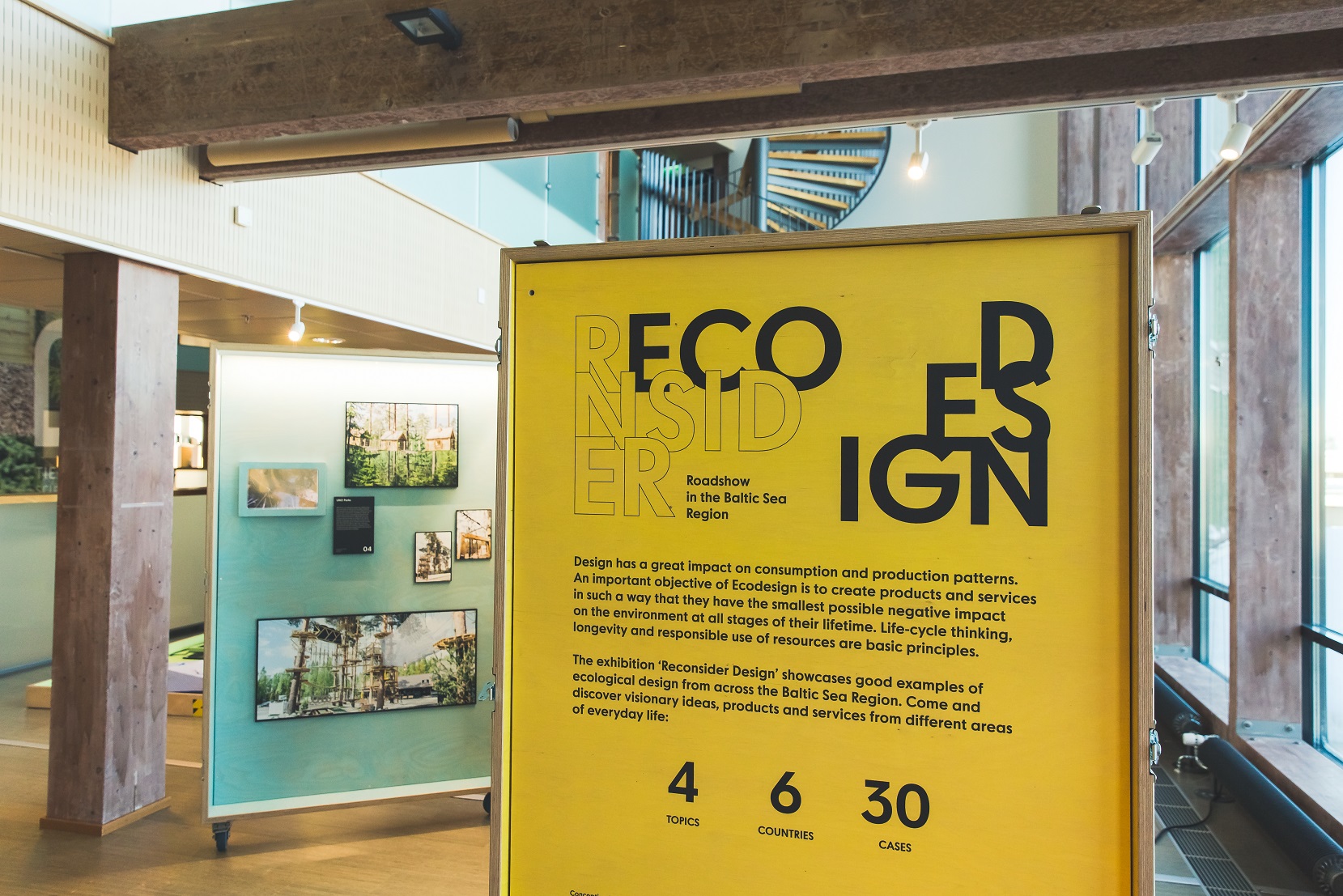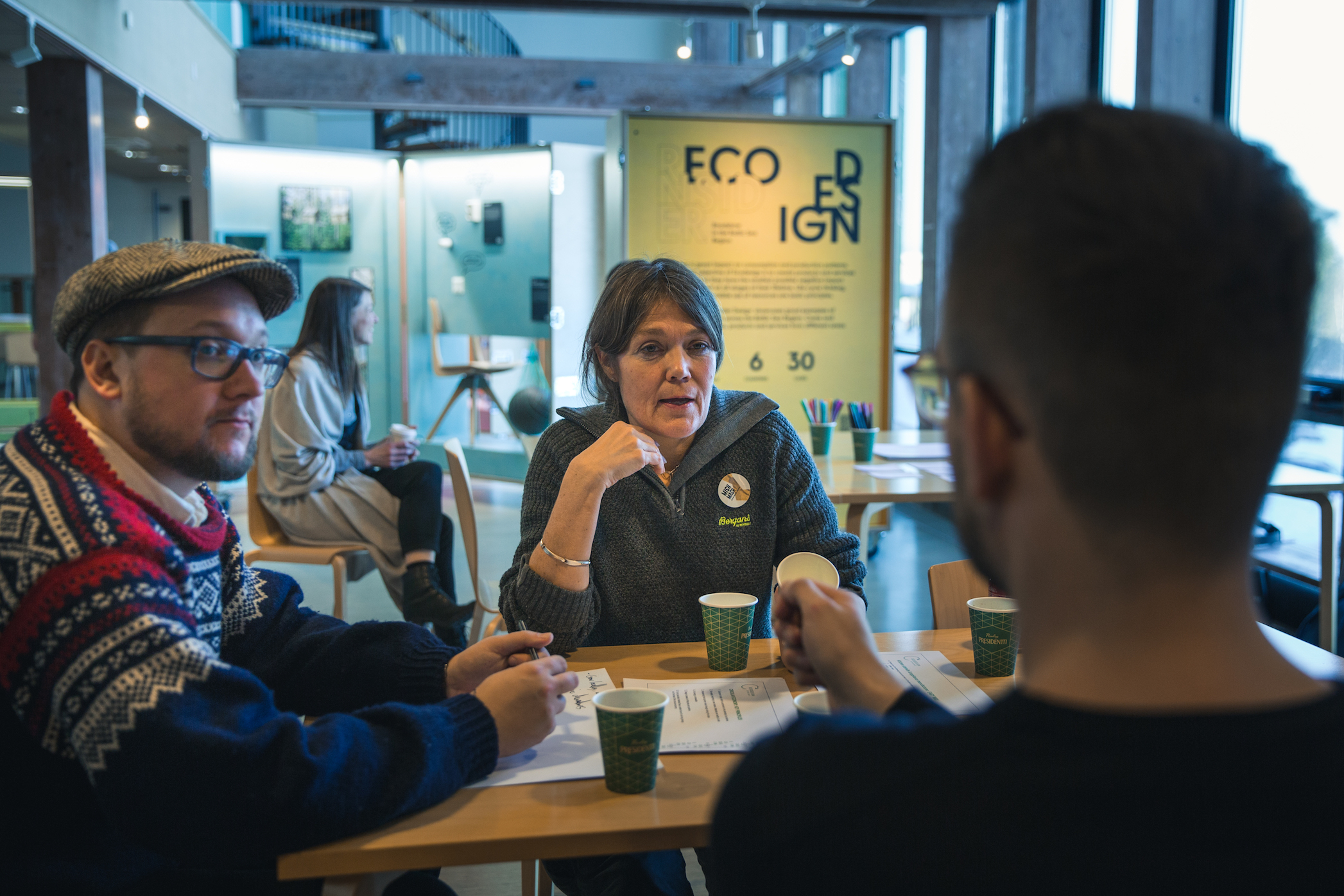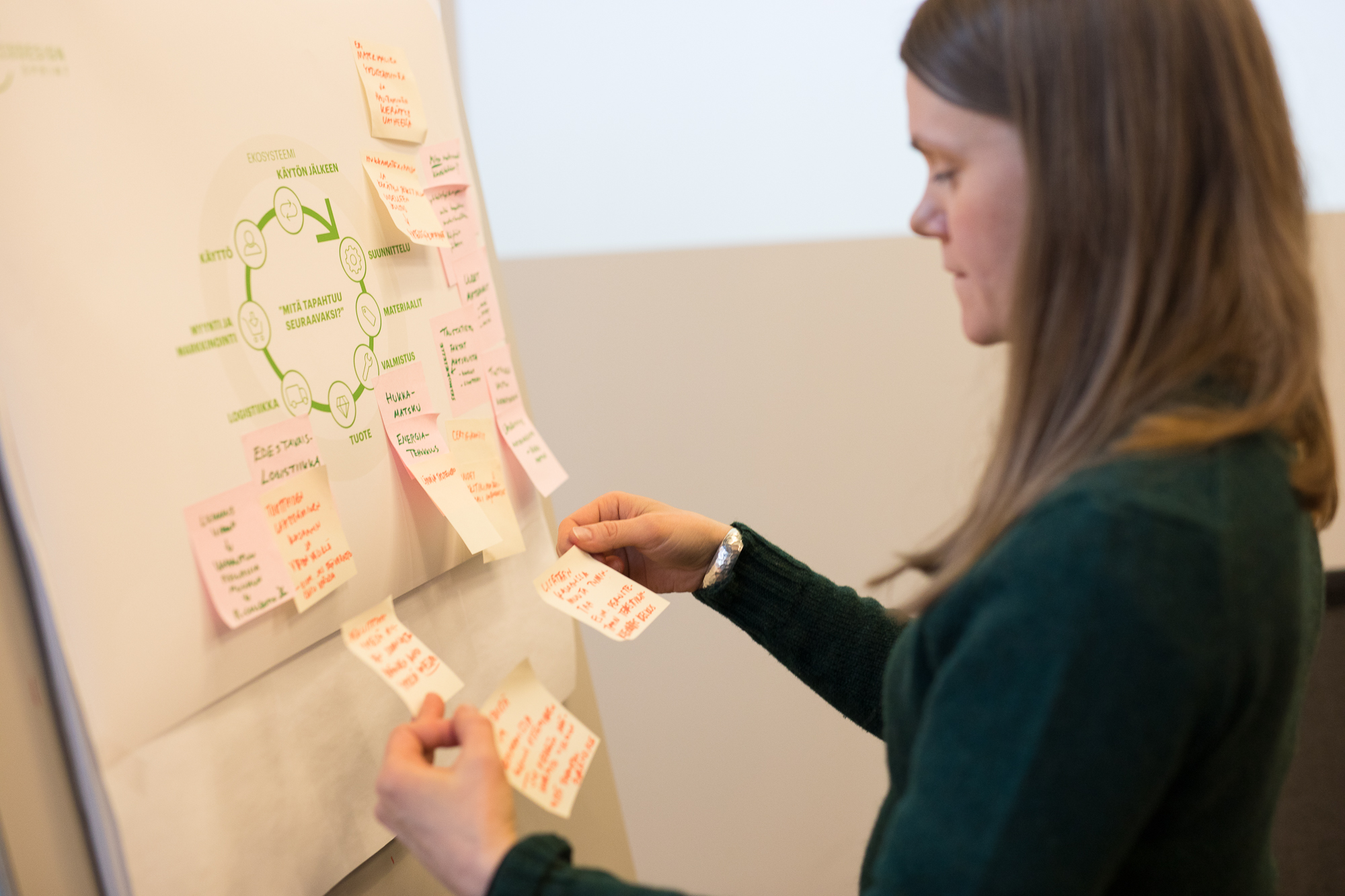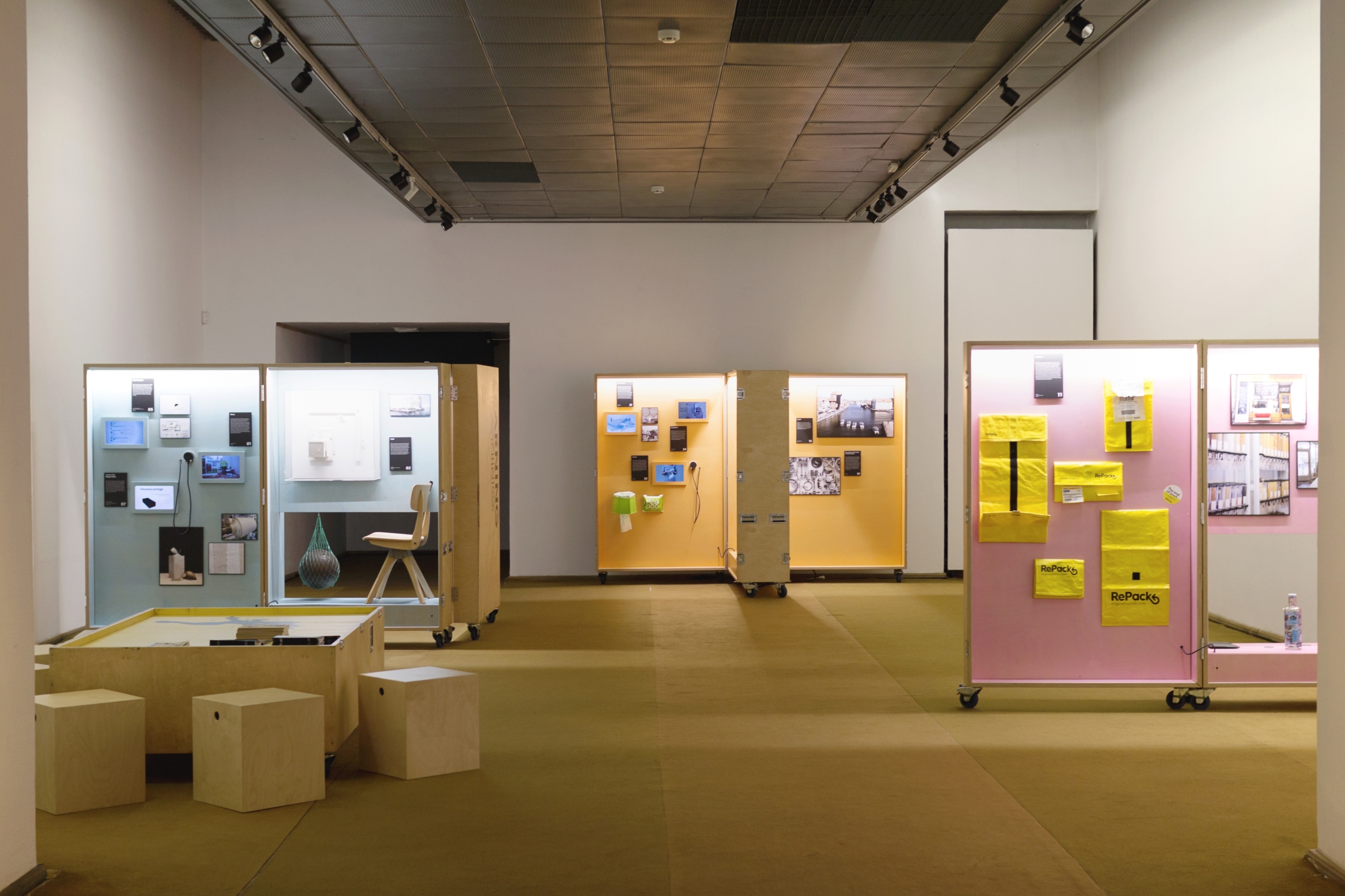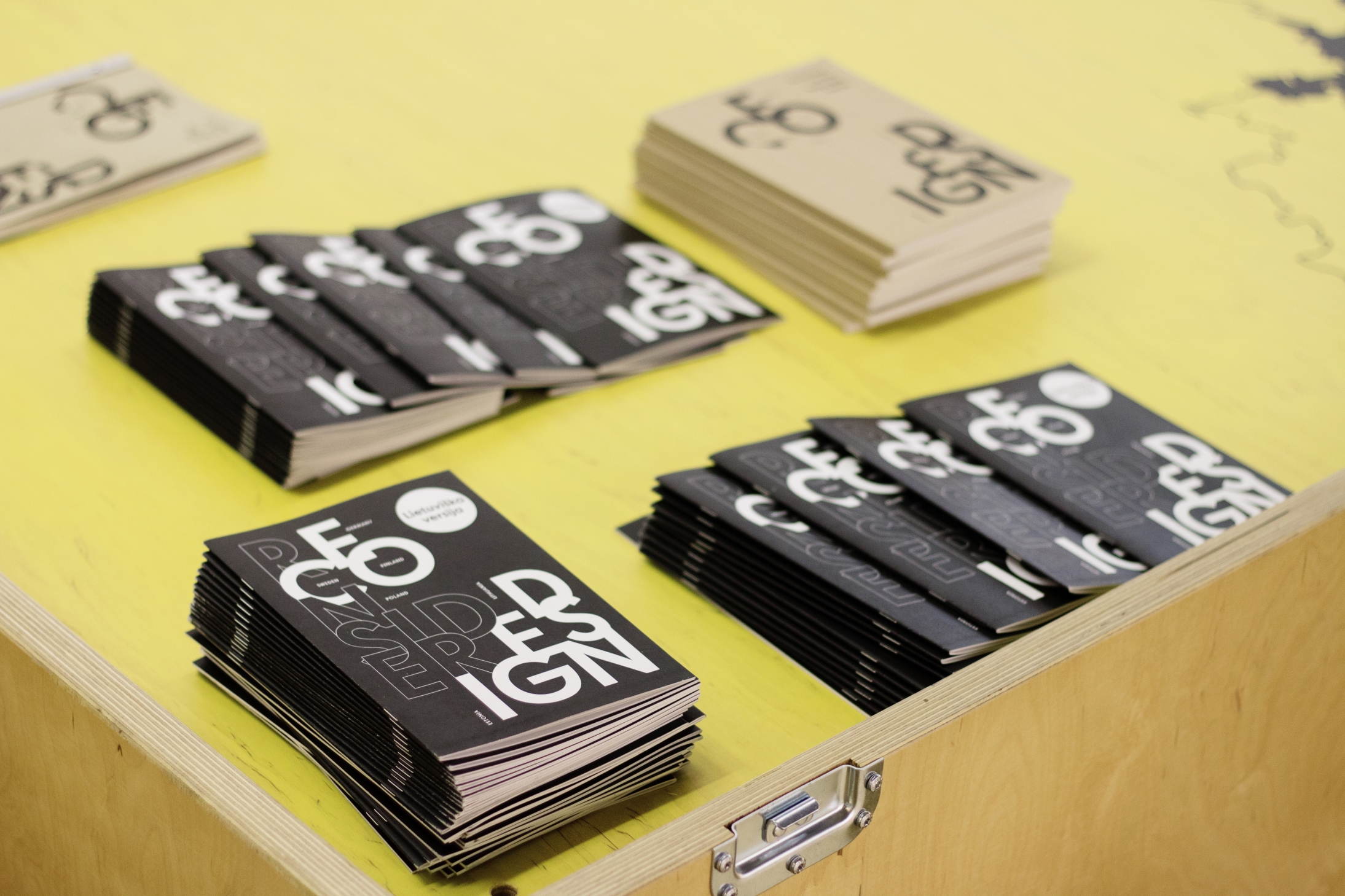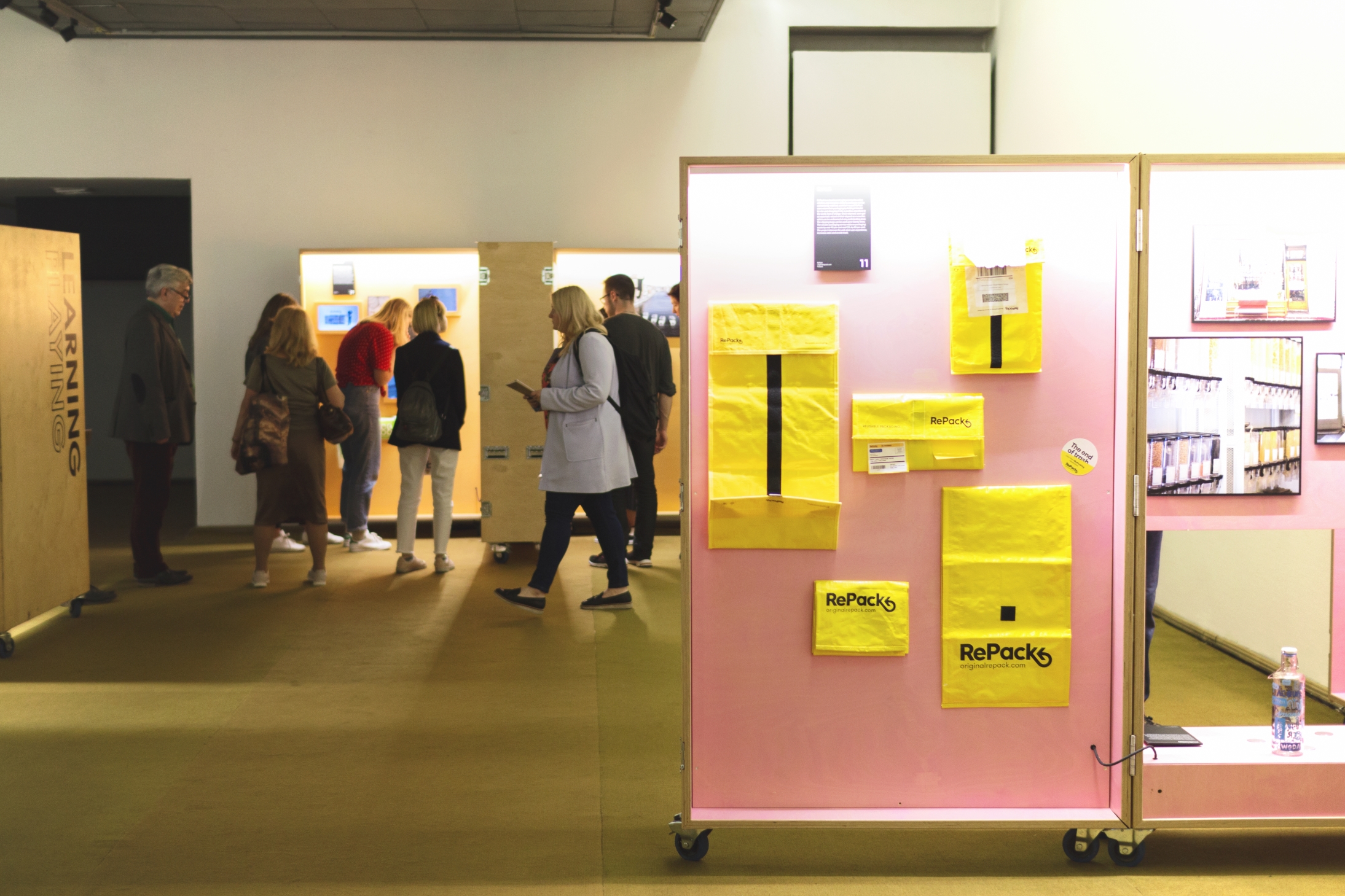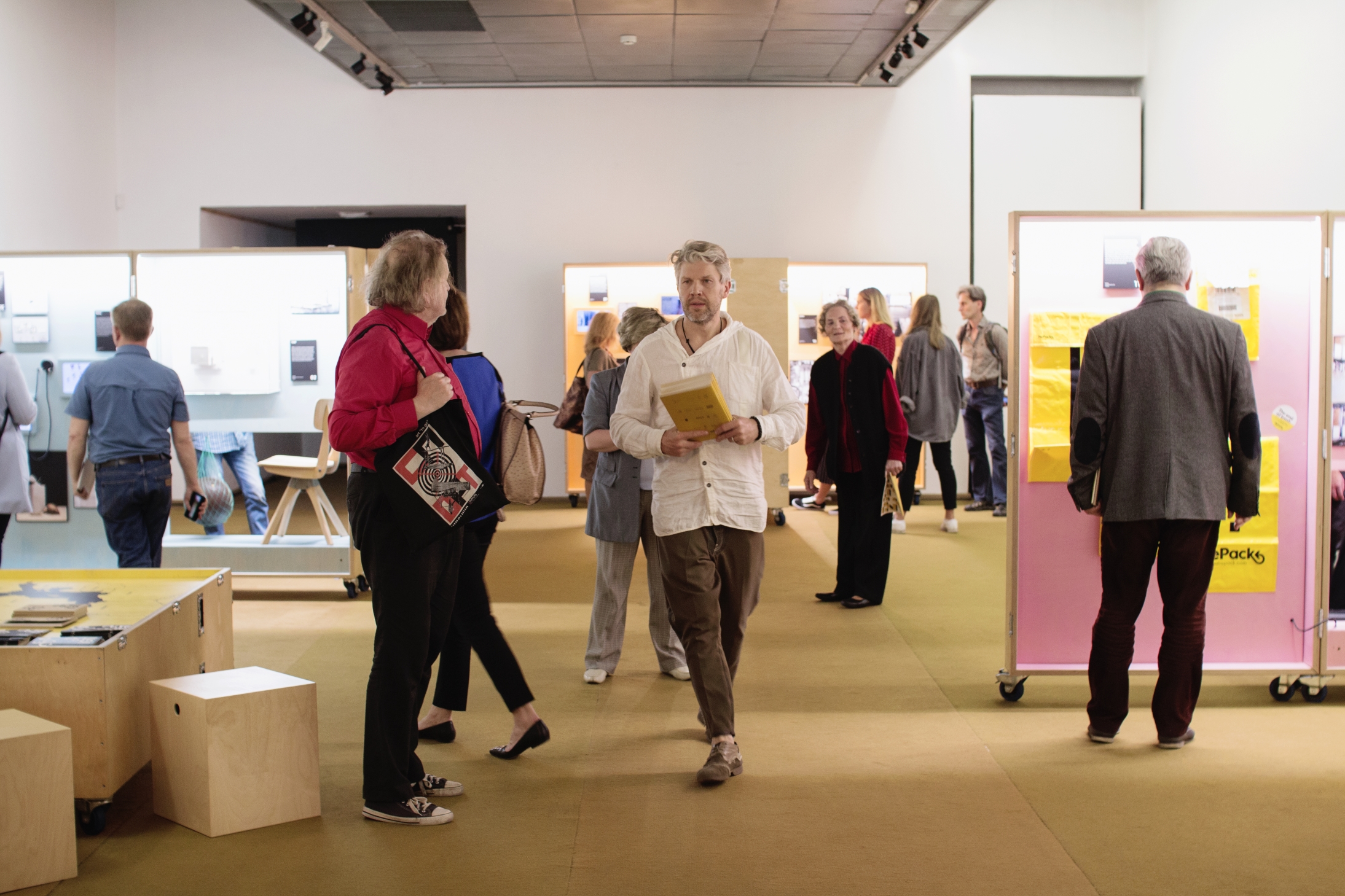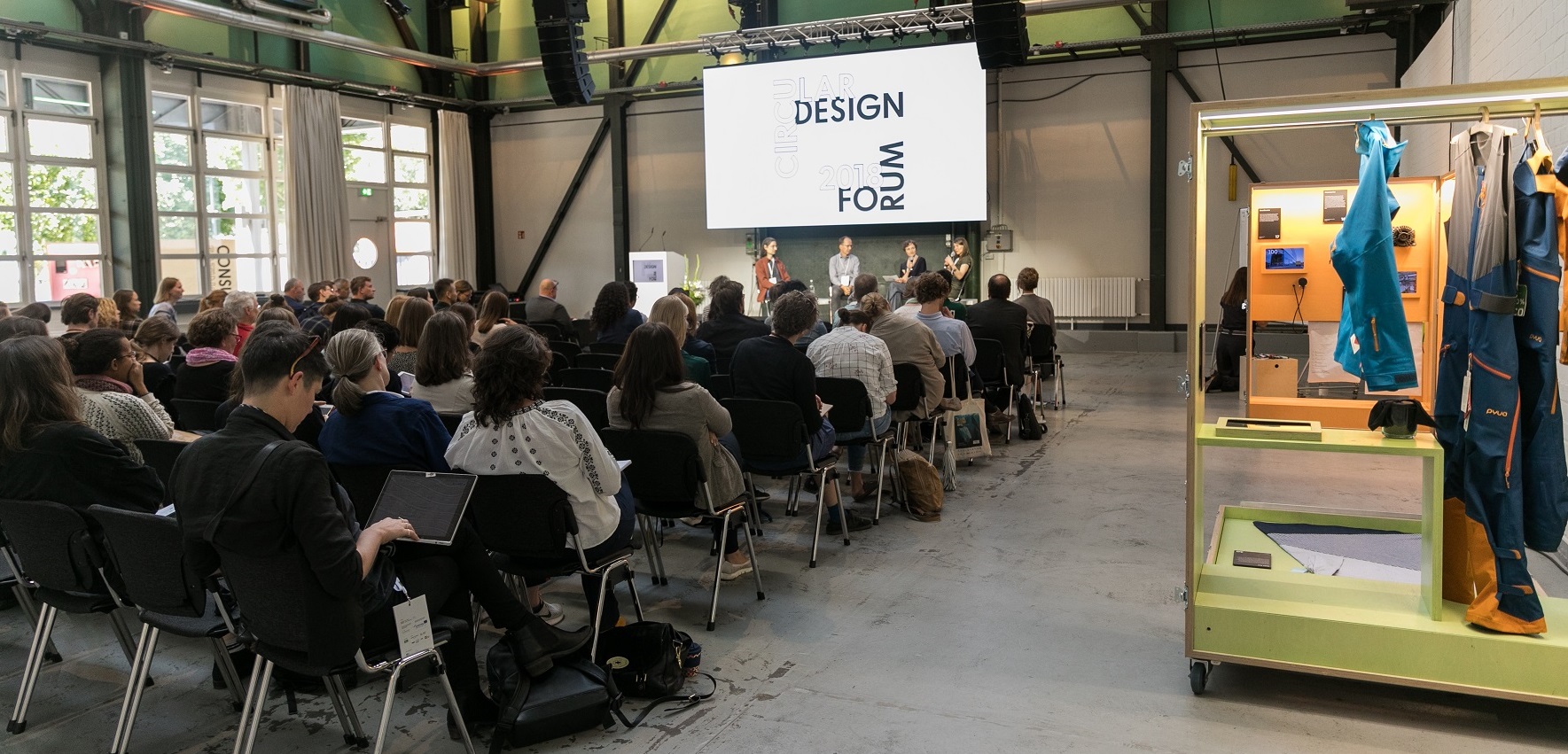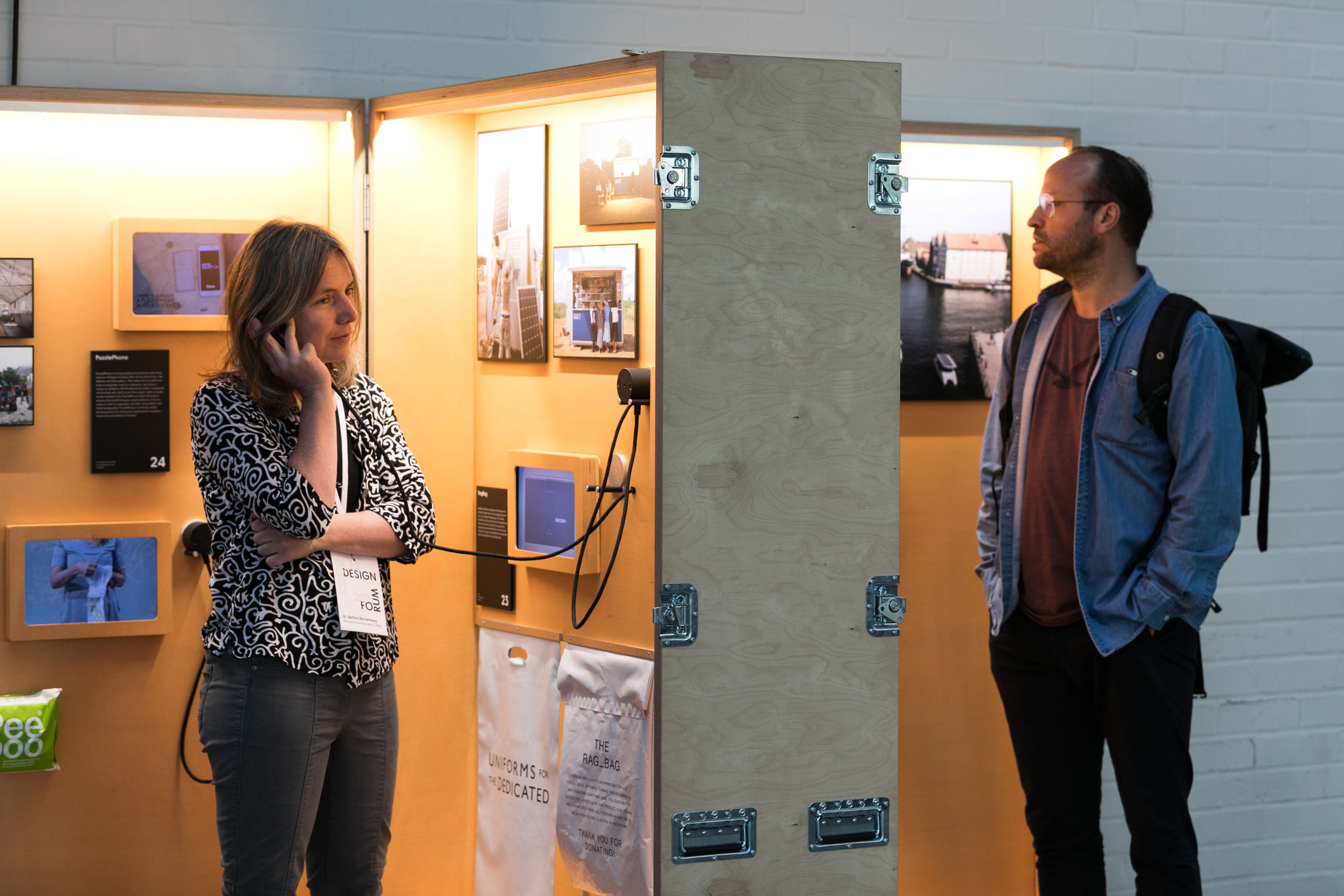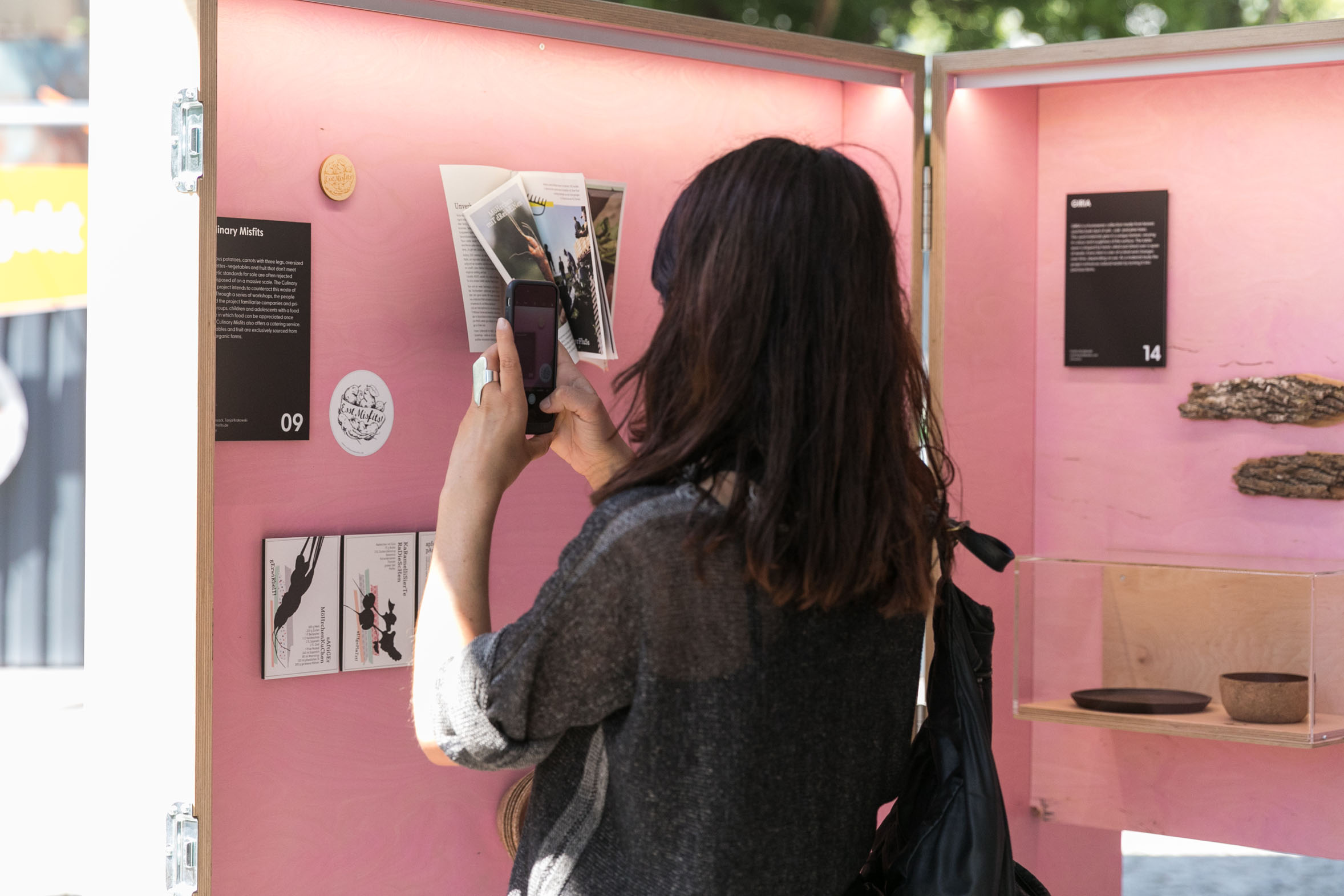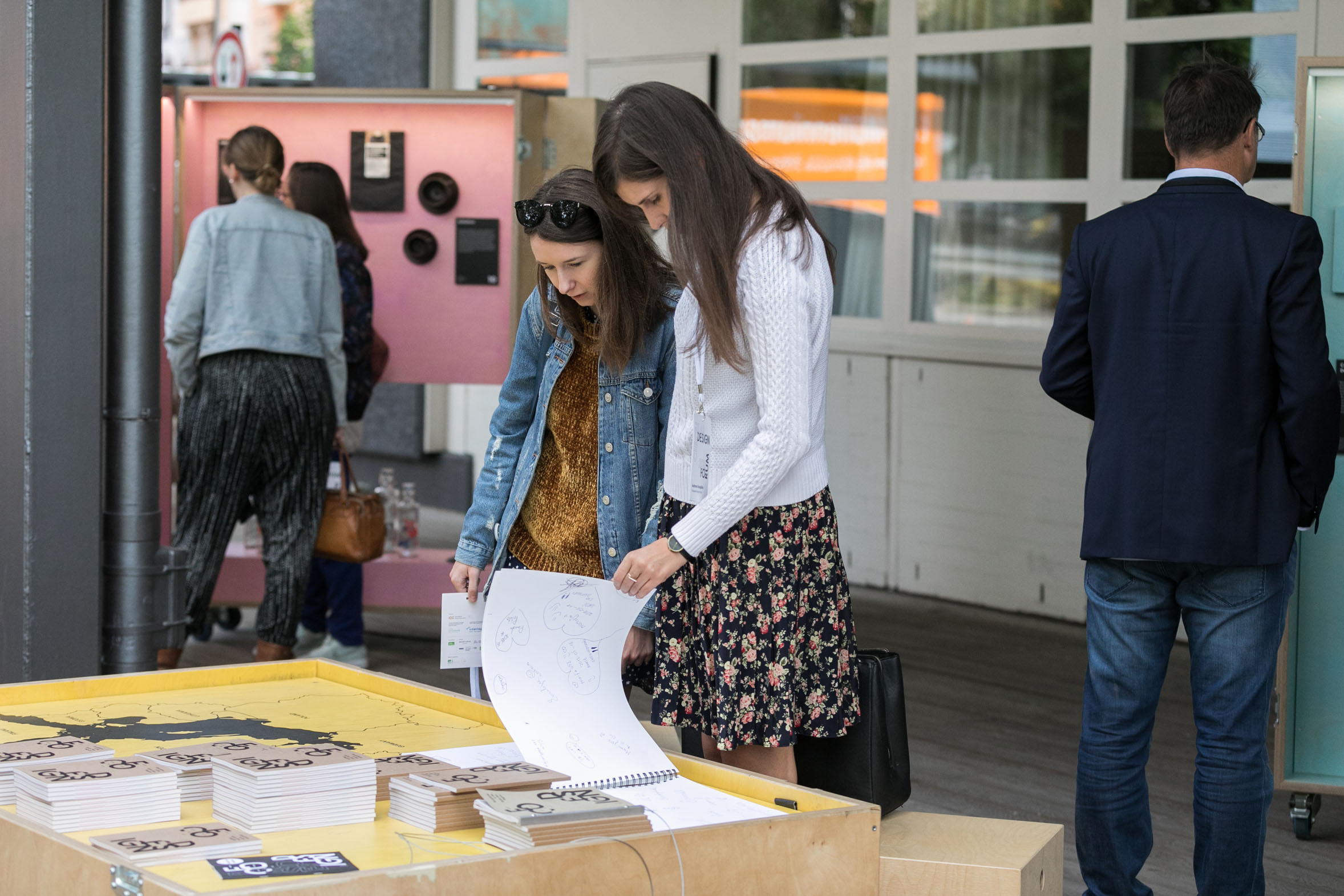Exhibition "reconsider design"
The carefully selected eco-projects presented at the "reconsider design" exhibition were intended to encourage visitors to consider their daily habits in order to reduce the negative impact of human activities on the environment, without sacrificing quality or the unique character of items. The accompanying series of lectures introduces entrepreneurs, lecturers, students as well as the broader audience to the potential of ecodesign and circular economy.
The "reconsider design" exhibition was presented in several Baltic Sea countries, including Estonia, Finland, Germany, Lithuania and Sweden.
Click below to discover the visionary ideas, products and services from different areas of everyday life and impressions from the exhibition and events. Or read our article at Interreg Baltic Sea Region news "Ecodesign on wheels - inspiring stories to reconsider design".
- 1 - Learning & Playing
- 2 - Consuming & Eating
- 3 - Enabling & Moving
- 4 - Dressing & Wearing
- 5 - Downloads
- 6 - Impressions
-
RETOY // Sweden
 Lek för Hållbarhet
Lek för Hållbarhet
retoy.se
The average five-year-old in Sweden owns more than 500 toys. At the same time, the industrialised nation of Sweden consumes the resources of approximately four Earths. Retoy wants to offer all children a sustainable relationship to consumption, while educating both them, their parents and other adult role models on children‘s rights. At toy swap events children exchange toys they no longer use, donate them to kids in need, or upcycle them in the Retoy Lab. Potentially harmful toys containing toxic chemicals are sorted out in the process. A total of 70,000 toys have already been exchanged since 2011, equal to 120 tons of CO2 saved from swapping instead of buying new toys.TORP // Poland
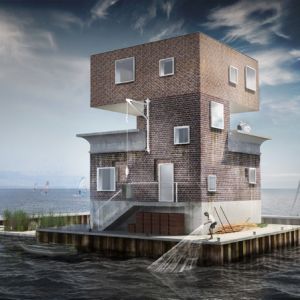 MFRMGR / Marta Frejda, Michał Gratkowski
MFRMGR / Marta Frejda, Michał Gratkowski
mfrmgr.pl
TORP is a concept for reviving a monitoring station at the Puck Bay, the western portion of the Bay of Gdansk. Constructed as a torpedo station during World War II, the guard point has since been left to the sea. The project aims to carefully restore the historic station, and foresees the construction of office and residential spaces within the building. On the outside area, vegetables can be grown, provisions stored and rain water collected. The facility will run on renewable energy. Waste water will be collected separately and disposed of.FLOW // Germany
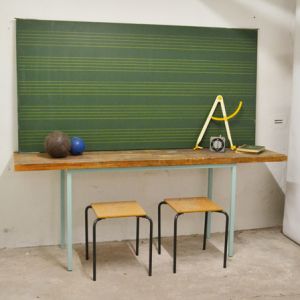 Re.Use of School Furniture and Equipment
Re.Use of School Furniture and Equipment
Regine Aicher, Nina Nicolaisen
schule-im-flow.de
Every year, schools and public authorities dispose of vast quanti-ties of inventory, such as furniture, sports equipment and teaching materials. Often, these items are fully functional and useable, but the facilities lack storage and suitable networking possibilities. Here, the FLOW brokerage and auction platform can serve as an interface. Used inventory is listed for social organisations or is made available for auction.UNO PARKS // Lithuania
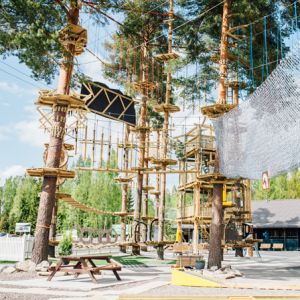 Adventure Architects
Adventure Architects
unoparks.eu
UNO Parks are adventure parks and children playgrounds made of natural and reusable materials. Only leased tools as well as local, certified wood are used for the construction. If installed in nature, the construction area is cleaned from industrial and organic waste beforehand. UNO Parks are easy to repair and are made accord-ing to the client’s desires, landscape and brand. The company has already realised projects in China, Europe and the USA. Adventure Architects offer their customers and partners as well as students, refugees and the unemployed education programmes in the areas of Circular Economy and Ecodesign.CO2 COMPASS // Germany
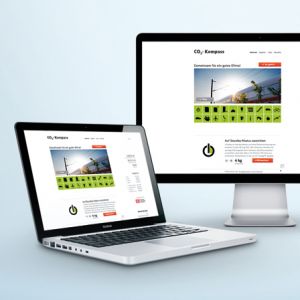 Scholz & Volkmer GmbH, for DB Mobility Networks Logistics AG
Scholz & Volkmer GmbH, for DB Mobility Networks Logistics AG
s-v.de
With the online game CO2-Kompass, Deutsche Bahn – one of the largest employers in Germany – is committing to raising awareness of the efficient use of resources among employees and company members. The playfully motivating approach of CO2-Kompass, in which users compete against each other, encourages partici-pants to save CO2 at home and in the office. Practical everyday tips, for example on the use of recycled paper or efficient heating, help to limit demand for CO2 and provide a gauge for activities.KOMPLOTT // Germany
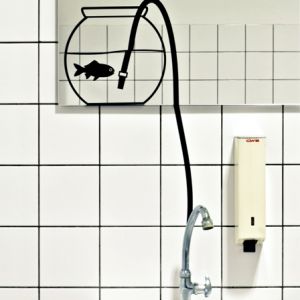 Janina Prenzing, Iven Sohmann
Janina Prenzing, Iven Sohmann
ivensohmann.de
The KOMPLOTT series of stickers appeals to everyone’s ecological awareness. The images counteract everyday ‘environmental sins’ in an unconventional and exhilarating way, thereby helping reduce energy and resource consumption. Originally designed for the University of Applied Sciences Potsdam, usage in other facilities like public offices, medical clinics, and schools is also conceivable.CARBON SINK DESIGN STUDIO // Finland
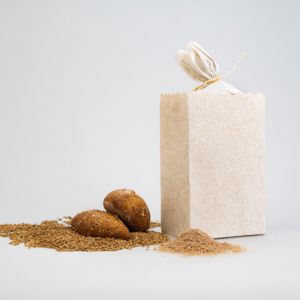 Hiilinielu Design Studio Design Forum Finland
Hiilinielu Design Studio Design Forum Finland
Lahti University of Applied Sciences, Tampere University of Applied Sciences
hiilinieludesign.fi
Wood draws the greenhouse gas carbon-dioxide (CO2) from the atmosphere. The Carbon Sink Design Studio research project promotes interdisciplinary work dealing with this phenomenon: students from the fields of design and engineering cooperate with companies to jointly develop innovative prototypes that replace fossil materials with sustainable alternatives. The project aims to create ecological materials, sustainable business models, and new forms of cooperation. The project is financed by the European Social Fund (ESF). -
BIOTREM // Poland
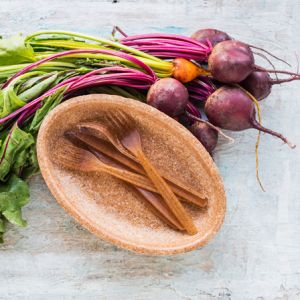 BIOTREM SP. Z O.O.
BIOTREM SP. Z O.O.
biotrem.eu
The disposable tableware Biotrem is completely biodegradable – through composting – in a mere thirty days. Wheat bran is a by-product, which forms during the milling of wheat grain. Biotrem’s production process uses only pure, edible wheat bran and a very small amount of water. No chemical additives are used, giving the tableware no adverse human health effects and no negative environ-ment impact. About one ton of wheat bran can make up to 10,000 disposable plates or bowls. The Biotrem tableware can be used for hot and cold meals, and is also suitable for oven or microwave use.CULINARY MISFITS // Germany
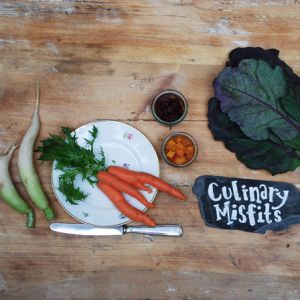 Lea Brumsack, Tanja Krakowski
Lea Brumsack, Tanja Krakowski
culinarymisfits.de
Tuberous potatoes, carrots with three legs, oversized courgettes – vegetables and fruit that do not meet aesthetic standards for sale are often rejected and disposed of on a massive scale. The Culinary Misfits project intends to counteract this waste of food. Through a series of workshops, the people behind the project familiarise companies and private groups, children and adolescents with a food culture in which food can be appreciated once more. Culinary Misfits also offers a catering service. Vegetables and fruit are exclusively sourced from local organic farms.KAFFEEFORM // Germany
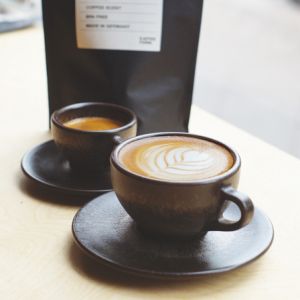 Kafform UG, Julian Lechner
Kafform UG, Julian Lechner
kaffeeform.com
The tableware Kaffeeform consists of coffee waste mixed with wood shavings and biopolymers. In cooperation with a Berlin based sheltered workshop, the coffee grounds are retrieved from local restaurants and cafes, and dried, packaged and sent out. The grounds are then processed at a production facility in Baden-Württemberg, where the waste is turned into a new product. The coffee-scented tableware is light, durable and easy to clean. Kaffeeform can be ordered online or purchased from selected cafes and businesses.REPACK // Finland
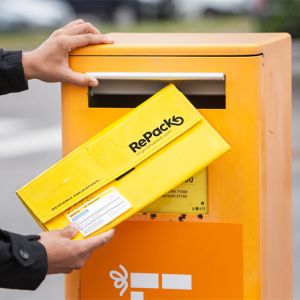 RePack
RePack
originalrepack.com
RePack is a circular packaging service for online retailers and shoppers: delivery packages can be conveniently returned, and then reused. RePack users return their packaging by folding it into letter size and dropping it into a postbox anywhere in the world, free of charge. Once returned, users get an automatic refund on their deposit as a voucher, which can be redeemed at any participating store. The shipping bags can be used up to twenty times. The circular packaging service reduces packaging waste by over 90 per cent and CO2 by 80 per cent. The project improves the web store user experience, increases sales and avoids trash.SOULBOTTLES // Germany
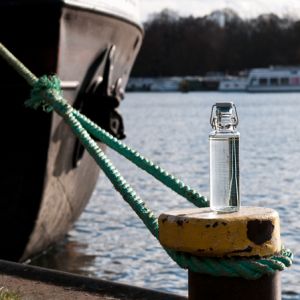 Soulproducts GmbH
Soulproducts GmbH
soulbottles.de
soulbottles are refillable glass bottles with stoppers made from stainless steel, ceramic and natural rubber. By not using plastic, drinks remain free from pollutants and softening agents. The bottles are produced in Germany, under fair conditions and in a climate-neutral manner. The various designs on the bottles were created by designers from all over the world. The project also supports drinking water initiatives: for every bottle sold, one Euro goes to the Hamburg based organisation Viva con Agua St. Pauli.ORIGINAL UNVERPACKT // Germany
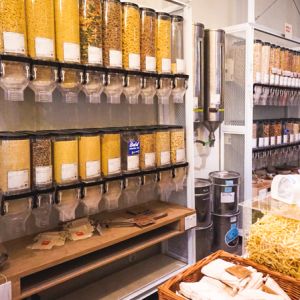 Original Unverpackt GmbH
Original Unverpackt GmbH
original-unverpackt.de
Almost half a ton of household waste is generated per capita in Germany annually – not least as a result of food packaged in plastic. The Original Unverpackt supermarket offers an alternative to this problem: No disposable packaging is used, and the goods can be packaged at packing stations instead – from beans to liquids to grain. Along with the specific avoidance of waste, the project informs about topics like recycling and ‘zero waste’. Original Unverpackt also offers an online course, in which participants learn how to launch a package free supermarket on their own. There is currently a supermarket in Berlin as well as an online shop.GIRIA // Lithuania
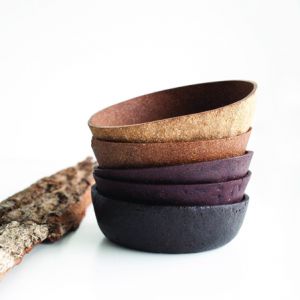 Evelina Kudabaitė
Evelina Kudabaitė
evelinakudabaite.com
GIRIA is a homeware collection made from leaves and the bark dust of ash-, oak- and pine trees. The used materials give it a unique texture, varying in colour and roughness of the surface. The tableware is shaped by hand, oiled and dried over a span of weeks. Every item is one-of-a-kind and changes over time, depending on use. As a material study the project enhances natural waste by turning it into precious items. -
SOLLINER // Poland
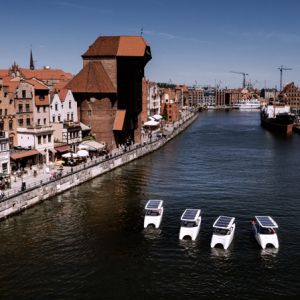 Green Dream Boats
Green Dream Boats
greendreamboats.com
The SollinEr yacht is powered by solar panels fitted on top of an automatically retractable roof. The boat can accelerate to 12 km/h. It runs silently and even on a cloudy day. When fully charged, it can cruise at night for 18 hours. Thanks to its aerodynamic hull, the water resistance is especially low. Light materials also reduce the weight of the yacht. The boating experience is thus improved and resource consumption is reduced.INSPIRO // Germany
 Siemens AG
Siemens AG
Design: Designworks, a BMW Group Company
siemens.com
The focal elements in the development of the Inspiro metro platform were energy efficiency and environmental acceptability – all the way from production up to daily operation, as well as almost complete recyclability. The weight of a six-train has been reduced by around 18 tonnes through lightweight construction and a weight-optimised chassis. Due to the pleasant interior design, passengers enjoy their travel time and use the metro more frequently.STREET SCOOTER // Germany
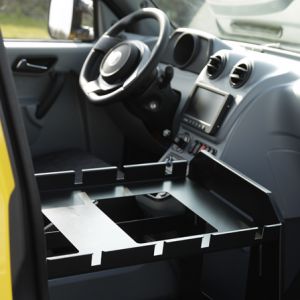 StreetScooter GmbH
StreetScooter GmbH
streetscooter.eu
StreetScooter has developed an electric mobility concept especially for Deutsche Post. The eco-friendly E-utility vehicle was developed with the requirements of the delivery of letters and parcels in mind, reducing the physical strain for the carrier. The lightweight construction keeps production costs low, while the modular system enables the production of different versions of the vehicle.COREMAN NET // Germany
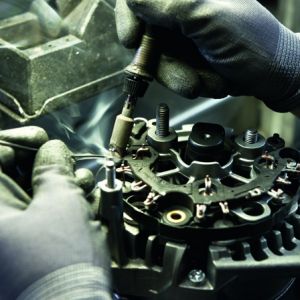 Circular Economy Solutions GmbH
Circular Economy Solutions GmbH
coremannet.com
CoremanNet enables a circular economy with a smart IT solution and an international logistic network. One example for the circular economy approach is the remanufacturing of used parts within the automotive industry. Used parts are collected, identified, evaluated, and sorted before being returned to a defined destination for future processing. During the remanufacturing process, the components are dismantled, cleaned and replaced. The remanufactured parts, all of equal quality, are more affordable than new components and protect the environment by saving CO2, energy, and raw material.TEVO NAMAI // Lithuania
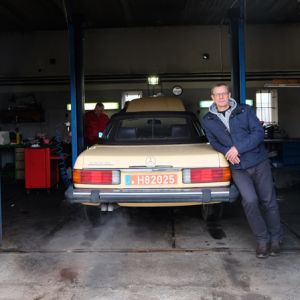 Tevo namai
Tevo namai
tevonamai.lt
The non-profit organisation Tevo namai is engaged in the re-socialisation of former prisoners. By offering training programs that focus on the former inmates’ skills, the organisation initiates new business opportunities. One of these training programs focuses in particular on the recycling and upcycling of used vehicles: the former convicts are recruited for car service companies, where they remove damaged car parts in order to repair and to refurbish them for reuse or sale. By doing so, the project facilitates the circulation of otherwise dismissed materials into the production chain, and enables the return of former prisoners into business and society. The foundation is also engaged in pollution control: together with a partner, the project produces and distributes biological probiotics that are used for the cleaning of sewage and polluted waters.PEEPOO // Sweden
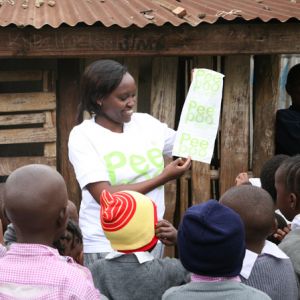 Peepoople
Peepoople
peepoople.com
In 2015, close to 2.5 billion people lacked access to basic sanitation worldwide. Lack of sanitation is a major contributor to diseases like diarrhoea and cholera, killing over a million children every year. Peepoo is a personal, single-use toilet that sanitises human excreta shortly after use, thereby preventing faeces from contaminating the immediate environment as well as the surrounding ecosystem. Ergonomically designed and using the minimum amount of material necessary to provide maximum hygienic sanitation, Peepoo is cost-efficient to produce. Since Peepoo is affordable for those with the weakest purchasing power, it offers a sanitation choice that benefits both individuals and society as a whole.BETTER SHELTER // Sweden
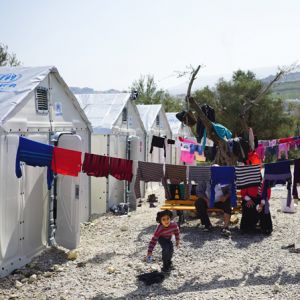 Better Shelter
Better Shelter
bettershelter.org
Better Shelter is designed to help the millions of people worldwide who have fled armed conflicts, persecution or natural disasters. It is a temporary one room post-emergency shelter with semi-hard, opaque walls. Better Shelter has four windows, a lockable door and a high ceiling, enabling users to stand upright inside. Its modular design makes it adaptable for different uses and locations. The shelter can be anchored to the ground and will withstand rain, snow and strong winds. It can easily be dismantled, moved and reassembled. Components of the Better Shelter units can be replaced individually, the roof and wall panels are recyclable. A solar powered lamp provides light during the hours of darkness. The shelter is designed to provide residents with a higher level of safety, security and dignity than a tent.SOLARKIOSK // Germany
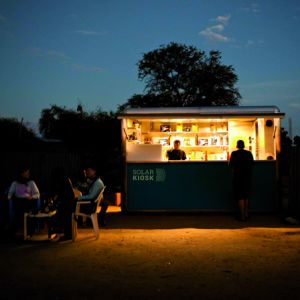 SOLARKIOSK AG, founded by GRAFT GmbH and Andreas Spiess
SOLARKIOSK AG, founded by GRAFT GmbH and Andreas Spiess
solarkiosk.eu
SOLARKIOSK provides clean and affordable energy to regions that previously relied on costly, polluting energy. It operates as an independent energy source for the rural population in off-grid communities. Solar panels and batteries generate solar energy independently from the power grid. The kiosk can run for three days after only five hours of sunshine, either to charge mobile phones or to cool medication. SOLARKIOSK also offers an inclusive business model cooperating directly with local people and developing their community. The electrical components are manufactured in Germany, and local materials are used for the remaining parts. SOLARKIOSK can thus be assembled anywhere, thanks to its modular building structure designed by GRAFT.RAGBAG // Sweden
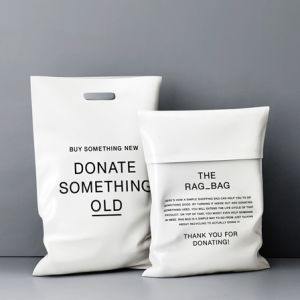 DDB
DDB
theragbag.se
RagBag facilitates complication-free donation of clothing. Folded inside-out, the shopping bag turns into a pre-stamped shipping bag. The clothing donation must only be placed into the shipping bag and put in the post. Consumers thus support aid organisations and extend the life cycle of the used clothing. The project was initiated by the sustainable fashion brand Uniforms for the Dedicated.PUZZLE PHONE // Finland
 Circular Devices Oy
Circular Devices Oy
puzzlephone.com
PuzzlePhone is a long-lasting smartphone with three easy-to-change modules: the critical electronics, the display and the battery. This makes the PuzzlePhone easy to upgrade, easy to customize, and easy to repair. In addition, the PuzzleLab provides companies and brands who wish to join the project with a ready-made standard: the PuzzlePhone Open Standard ensures that both firmware and hardware of accessories as well as upgrades are fully compatible and interchangeable. PuzzlePhone is currently under development. It is designed, engineered, manufacturedand assembled in Europe. -
SUSTAINABILITY AND OTHER STORIES // Germany
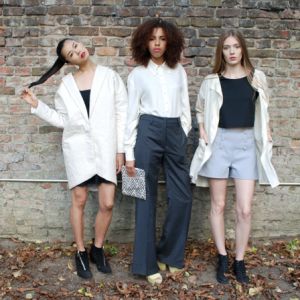 MAYYA SALIBA design & sustainability
MAYYA SALIBA design & sustainability
mayyasaliba.com
Can Circular Economy reconcile the paradox of fast fashion and sustainability? Sustainability and Other Stories is both a case study and fashion collection. The pieces in the collection were designed for circularity using different techniques to close the loop. The project aims to reinforce the political role of design and explore the link between consumption and social behaviour in a globalised world.PYUA // Germany
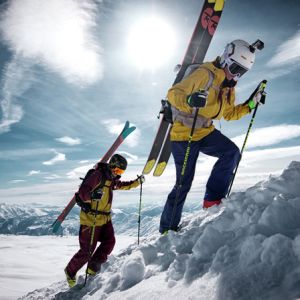 Sportsman‘s Delight GmbH
Sportsman‘s Delight GmbH
pyua.de
The functional clothing brand PYUA manufactures winter sports clothing from previously recycled or recyclable materials in the so-called Closed-Loop Recycling System. This system avoids resource waste and reduces CO2 emissions. The fluorocarbon-free fittings set a high standard: the polyester laminate Climaloop, which is developed specially for impregnation, is pollutant-free. The accompanying repair service contributes to prolonging the service life.PURE WASTE TEXTILES // Finland
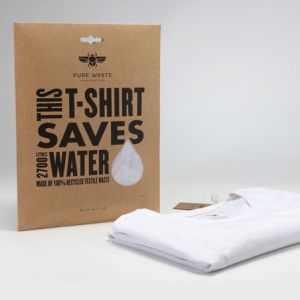 Pure Waste Textiles LTD.
Pure Waste Textiles LTD.
purewastetextiles.com
Pure Waste Textiles makes 100 per cent recycled yarns, fabrics, and ready-made garments. The raw material for the textiles is collected from two main sources – cutting clips from ‘cut, make and trim’–factories and yarn waste from spinning and weaving mills. Sorted by colour and quality, the textiles are mechanically opened back into fibres. Depending on the final use of the fabric, the cotton waste can then be mixed with chemically recycled polyester or viscose fibres and spun into yarns. Knitted or woven, the yarns undergo a finishing process and are cut into the final product. No harmful chemicals are used during the recycling process. Each Pure Waste T-shirt saves up to 2,700 litres of water in comparison to a T-shirt made of virgin materials. 90 per cent of the energy used for in the recycling process comes from renewable energy.KLEIDEREI // Germany
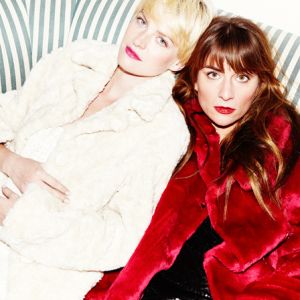 Kleiderei Hamburg GmbH
Kleiderei Hamburg GmbH
kleiderei.com
Kleiderei is a lending service for clothing. For a fixed amount, subscribers receive a monthly package with four pieces of clothing to their home. The clothing is customised to suit subscribers’ respective taste, to which end a questionnaire has to be filled out during registration. The products consist of (young) design brands, selected vintage pieces, and donated clothes. The project facilitates a diverse wardrobe and the sampling of new styles – avoiding fast fashion or excess. Clothing can also be loaned ‘offline’ at the Kleiderei store in Cologne.UPMADE // Estonia
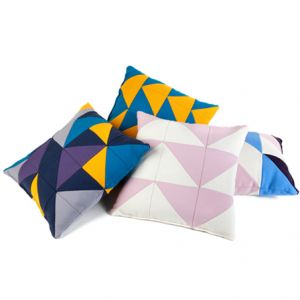 Aus Design Llc.
Aus Design Llc.
upmade.org
Traditional clothing manufacturing creates an average of up to 18 per cent textile leftovers. Upmade closes the loop by applying upcycling on an industrial scale and reducing the amount of textile leftovers. With the help of the Upmade software, excess materials are turned into garments. Waste is therefore brought back into the consumption chain. Upmade reduces production costs and CO2 emissions, while saving energy and water. The project provides a profitable and scalable solution to the problem of textile leftovers for any size of a brand. Brands and manufacturers can obtain a certification.REET AUS // Estonia
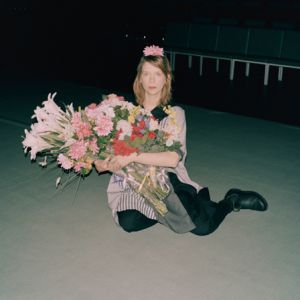 Aus Design Llc.
Aus Design Llc.
reetaus.com
The designer Reet Aus is dedicated to Slow Fashion. Her upcycled collection is made entirely from post-production leftovers. For her collections she uses the Upmade method, an industrial upcycling method that she has developed. The method involves a complete lifecycle analysis of the garments and enables the circulation of leftover materials back into the production chain. The ‘Reet Aus’ collection is therefore very efficient. For example, each Up-shirt saves on average 91 per cent water, 87 per cent energy and creates 80 per cent less CO2 in comparison to a conventionally produced T-shirt. -
Reconsider Design | Exhibition Catalogue (ENGLISH) (4.9 MB)
Reconsider Design | Exhibition Catalogue (GERMAN Facsimile) (700 KB)
Reconsider Design | Exhibition Catalogue (LITHUANIAN Facsimile) (700 KB)
Reconsider Design | Exhibition Catalogue (POLISH Facsimile) (700 KB)
Reconsider Design | Exhibition Catalogue (SWEDISH Facsimile) (700 KB)
Reconsider Design | Workshop Manual | 'Sustainability in Everyday Life' - Workshop for Primary School Children (2.4 MB) -
THE EXHIBITION
© Gdynia Design Days 2017 | Bogna Kociumbas, Michał Szymończyk1ST STOP: GDYNIA DESIGN DAYS 2017 | Poland
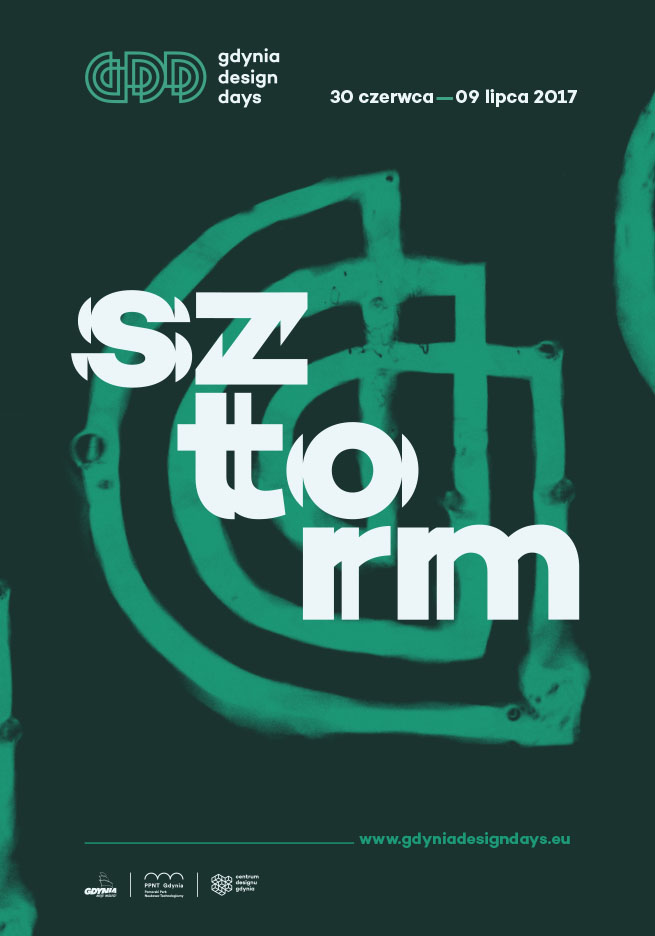
For the 10th time, Gdynia became the summer capital of good design. The jubilee edition of Gdynia Design Days was guided by a direct and metaphorical slogan referring to the seaside location of the festival - STORM.
Together with the exhibitions "City on the wave" (by Izabela Bołoz, presenting innovative approaches with respect to pollution and waste in urban areas) and "Let's talk about garbage" (by Hugon Kowalski | Marcin Szczelina, facing the global problem of waste overproduction), our exhibition "reconsider design" was the third element showing the results of "creative STORMS", addressing the question of sustainability in daily life.
Gdynia Design Days 2017 – First Roadshow Stop.
Gdynia Design Days is an annual festival showcasing the latest trends and best practices in the field of design. Brimming with inspiring exhibitions, lectures, workshops and discussions, the programme is aimed at professionals, young entrepreneurs and design enthusiasts looking for inspiration for creative activities and creative leisure time. The organiser of the festival is Gdynia Design Centre.
This year, the ten-day festival took place from the 30th of June to the 9th of July, during which time Gdynia became the best summer meeting place for the design industry. The Gdynia Design Days were also the first stop for the ‘reconsider design’ exhibition that was shown in premises of the Pomeranian Science and Technology Park Gdynia. The carefully selected eco-projects showcased here encouraged visitors to consider their daily habits in order to reduce the negative impact of human activities on the environment, without sacrificing the quality or the unique character of items. The festival’s guests also had a chance to take part in a curatorial tour led by Patrick Liwitzki from the International Design Centre Berlin. During its ten-day stint, ‘rECOnsider design’ was met with great interest and attracted over 1.200 visitors.
An accompanying initiative during the Gdynia Design Days was the EcoDay that took place on the 6th of July 2017. It was series of lectures that introduced entrepreneurs, lecturers, students as well as the broader audience to the potential of ecodesign and the circular economy. Visitors also had a chance to find out more about the EcoDesign Circle project. The topics raised were: ‘Upcycling as an innovative trend in art, design and responsible business’; ‘Packaging. How to design to recycle?’; ‘Wheat bran. The future of disposable packs’. The meeting concluded with an interesting panel discussion moderated by Conrad Dorer (German Environment Agency) and Paulina Kisiel (Gdynia Design Center). Invited guests discussed how to improve the popularity of ecodesign among consumers, businesses and institutions. The issues raised were also related to environmental challenges. As both the exhibition and lectures met with great interest and positive feedback, Gdynia Design Centre is eager to continue a similar formula during next Gdynia Design Days in 2018.
2ND STOP: GERMAN ENVIRONMENT AGENCY 2017 - Dessau | Germany
German children brainstorm ecodesign
On their second stop, the "rolling boxes" spent almost two months fascinating visitors under the roof of the German Environment Agency in Dessau, Germany. At a juniors' workshop with nine to ten years old kids, questions were discussed, such as: Do designers have the opportunity to make more than "just attractive products"? Does a curvy cucumber have the same taste as a straight one? How much influence do we have as consumers? And as a highlight, a short 'Retoy swap' was tried out.
Interested in this workshop? Here is the manual!3RD STOP: ARCTIC DESIGN DAYS 2018 - Rovaniemi | Finland
Reconsider Design meets Santa Claus
The exhibition Reconsider Design was on show at Science Centre Pilke in Rovaniemi from 21 February until 11 March 2018. Good cases presented from Finland comprised Hiilinielu Design Studio, PuzzlePhone, RePack, and PureWaste. The exhibition was part of Arctic Design Week and Design Forum Finland was responsible for its showing in Finland.
EcoDesign Workshops at ReConsider Design exhibition in Arctic Design week
Two EcoDesign Sprint workshops were arranged during Arctic Design Week. Around fifty persons were introduced to the principles of circular design and its opportunities. The first one was a half-day workshop, the second, one of the stops of the MISHMASH non-stop Action Day tour: a 30-minutes quick dive into circular design.
The workshops introduced the guiding principles of the circular economy and explored the concept of circular design. What does circular design mean? What are the most important viewpoints that every designer should know? Through various case-examples and exercises the participants from all over the world learned the basics of the circular design framework. The participants selected a product of their choice to focus on during the exercises.
Both workshops were led by the circular economy expert Anne Raudaskoski, co-founder and principal consultant of Ethica Oy.
Feedback of a workshop participant: "Various viewpoints of circular economy were brought out crystallized and distinctly. The core of the program – circular economy & design – is an excellent combination. We were able to make much more out of it than we had expected."
4TH STOP: DESIGN WEEK LITHUANIA 2018 - Kaunas | Lithuania
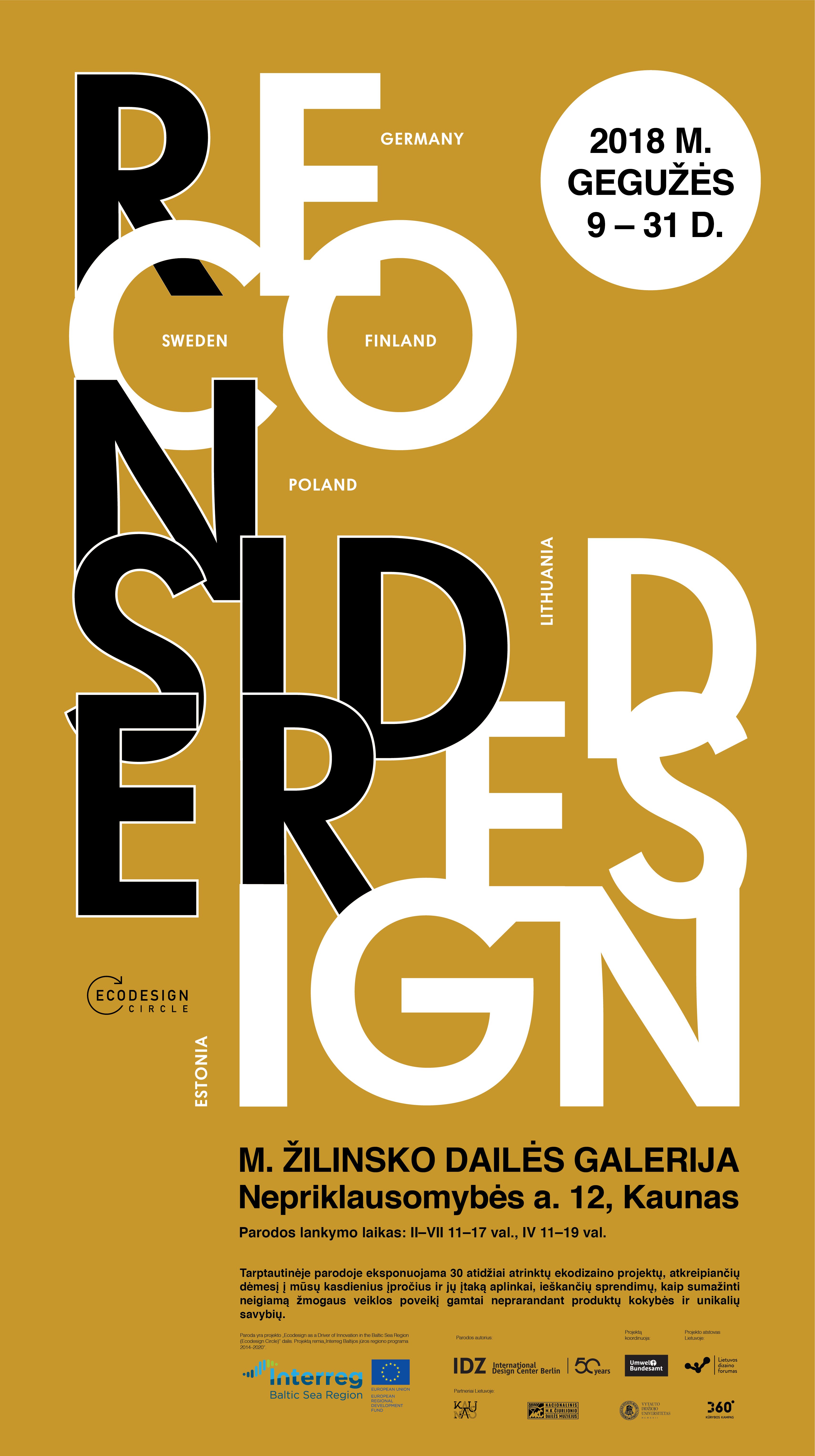
Kaunas is a modern, creative and inclusive city. A wide cultural offering is provided through the city’s 60 museums and galleries, as well as festivals and fairs such as the Kaunas Architecture Festival and the Design Week. During the Lithuanian Design Week 2018 organised by the Lithuanian Design Forum, the exhibition 'reconsider design' was presented in the M. Žilinskas Art Gallery in Kaunas. It was accompanied by a training of the Learning Factory Ecodesign.
5TH STOP: CIRCULAR DESIGN FORUM 2018 - Berlin | Germany
Our travelling exhibition 'reconsider design' framed the conference "Circular Design Forum" at the Euref-Campus in Berlin.
6TH STOP: TALLINN TECHNICAL UNIVERSITY 100 (years) - 2018 | Estonia
In September 2018, the exhibition travelled to Tallinn, Estonia, and was presented at the "Innovation and business centre Mektory". About 5.300 visitors were attracted by the inspirational display - students and academic staff, enterpreneurs and international delegations. This exhibition was part of the programme "Tallinn Technical University 100".
7TH STOP: SCIENCE PARK BORÅS | Sweden
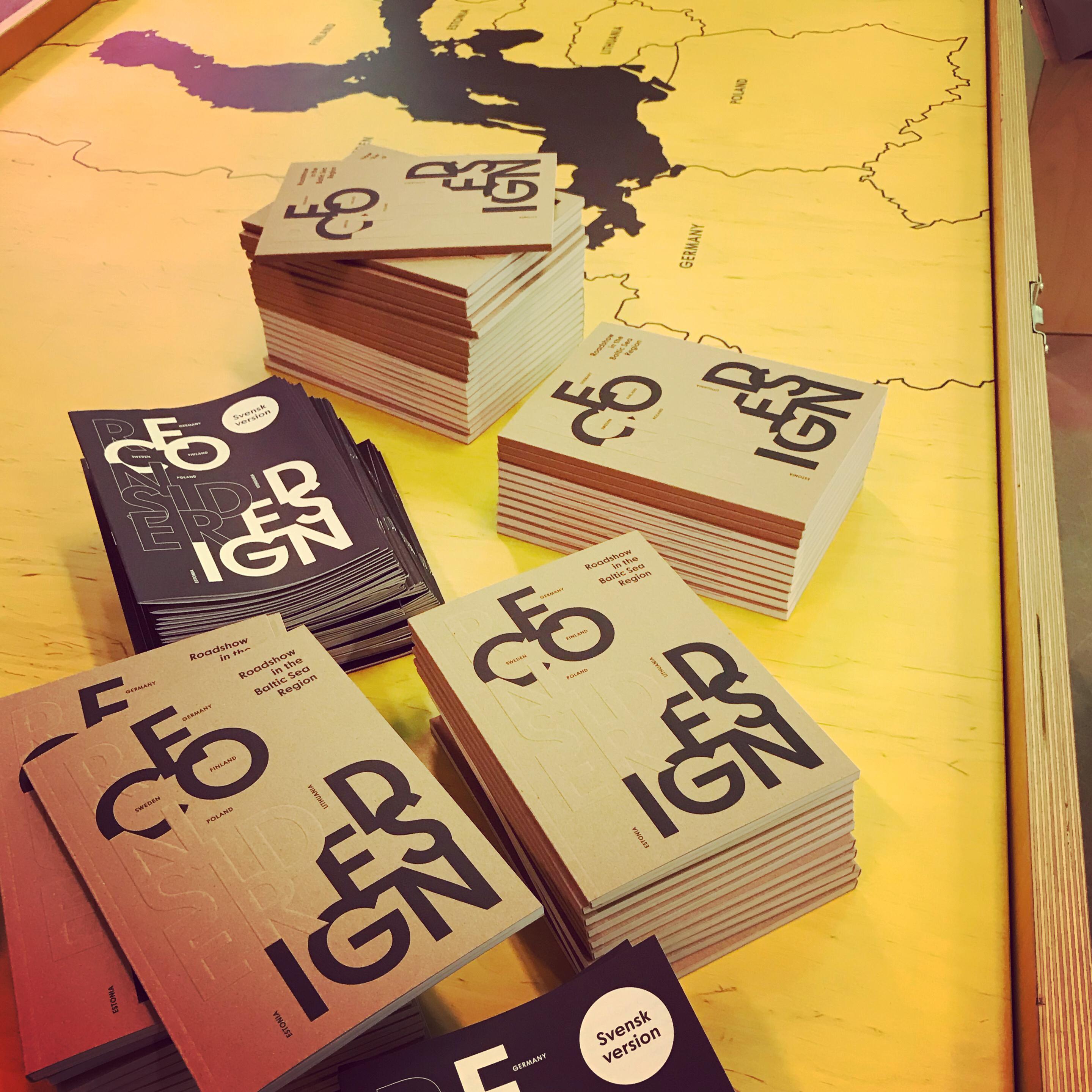
Anna Velander Gisslén, SVID"To have the exhibition at Science Park Borås is really fantastic. Borås, located in Västra Götaland, is an area that’s in the forefront of circular innovation in Sweden. So, this cooperation is really a great opportunity. The science park also has a space called Navet, with the target group children and young adults, where there will be additional activities. The response to the exhibition has been fantastic, people love it! And I can only join the choir, it’s great!"
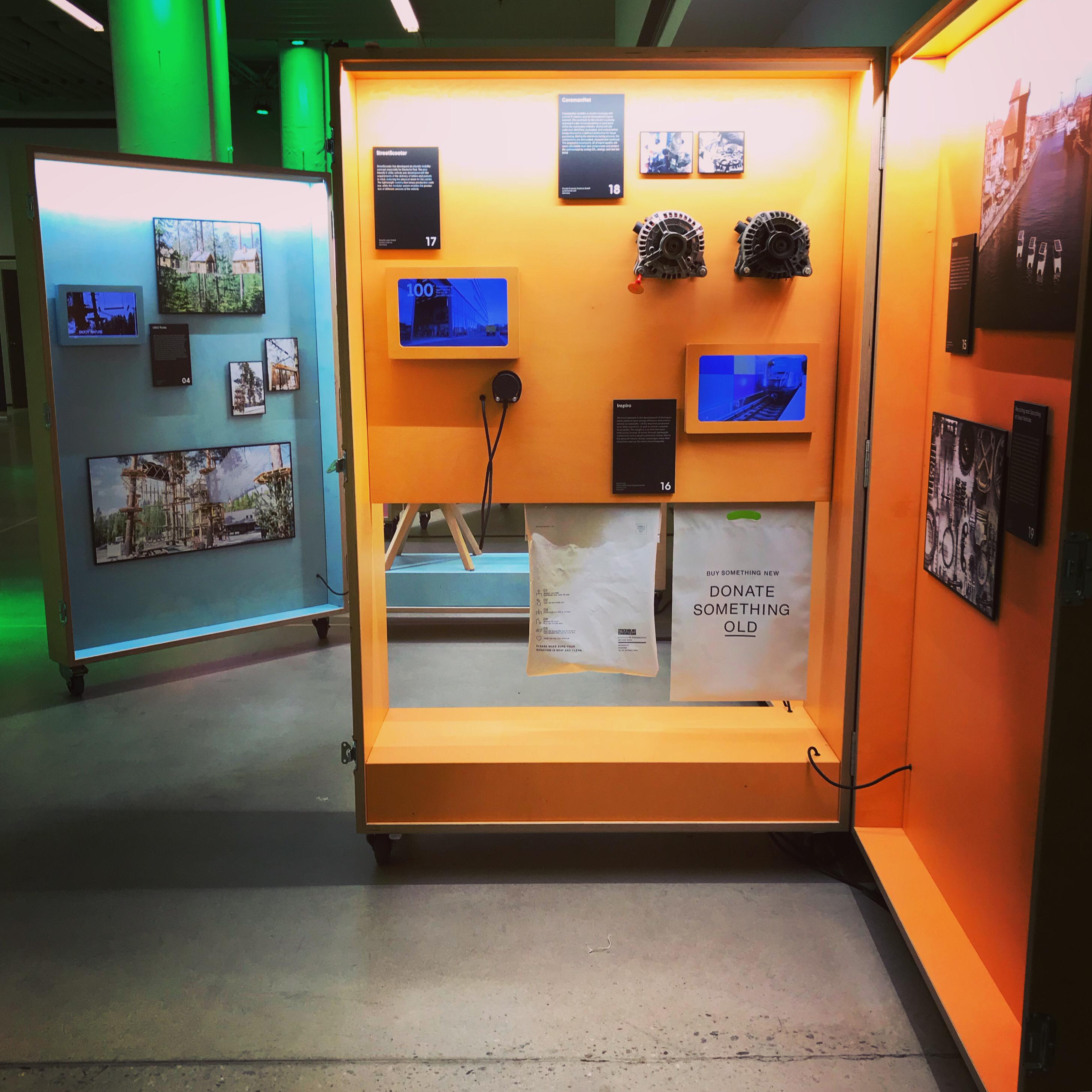
The opening of the exhibition was accompanied by a workshop: "Best in the world on circular business?":
On October 10, Science Park Borås and Smart Textiles together with the Västra Götaland region invited to a day filled with lectures, discussions and networking around the topic of circular business. The purpose of the day was to highlight successful, circular examples and inspire more companies to transform their business model into a circular economy model. The speakers included representatives from IKEA, Houdini, circular.fashion, Re: textile, Möbelbruket and others.
The travelling exhibition 'reconsider design' was presented from 10th Oct 2018 until 28th Jan 2019 in Borås.

